- How The BTB Works
- Minister of Tourism
- Board of Directors
- Executive Management Team
- Marketing & Communications
- Industry Development
- Cruise & Capacity Development
- Registrar Unit
- Administration and Human Resources
- Finance Department
- Strategic Plan 2019 – 2022
- Corporate Responsibility
- Committee Relations
- Travel Publications
- Sargassum Resource
- Tourism Asset Inventory
- AirBnB Resource
- Belize Drone Requirements
- Online Portal FAQ’s
- Travel Trade Shows
- Vacancy Application Form
- Belize COVID-19 Travel Updates
- Press Releases
- Media Gallery
- Media Requests
- Marketing Beat Newsletter
- Tour Operator
- Luxury Tourism: Private Aviation
- Nautical Tourism
- Tourism Development Plans
- Useful Links
- Belize Tourism History
- Matching Grant Program
- Retirement Program
- Tour Operator Insurance Support Program
- Tourism and Health Program
- Belize Earth Day: A Creatively Green Pop-Up!
- Industry Conference
- Digital Marketing Summit
- Taste of Belize
- Belize International Music and Food Festival 2.0
- National Tourism Awards
- Tour Guide Training
- Gold Standard Resources
- Tourism Gold Standard Hotels
- Tourism Gold Standard Tour Operators
- Tourism Gold Standard Sites
- Tourism Gold Standard Transportations
- Tourism Gold Standard Gift Shops
- Tourism Gold Standard Restaurants

New Travel Health Insurance Now Available For Purchase Online
- February 15, 2022
- Posted by: Xiomara Sawers
- Category: International, News, Policies
NEW TRAVEL HEALTH INSURANCE NOW AVAILABLE FOR PURCHASE ONLINE
Belize City, Belize, February 7th, 2022: The Belize Tourism Board (BTB) is pleased to announce that the travel health insurance required from all visitors upon entry to Belize with effect from Feb. 15, 2022, is now available for purchase online at https://www.belizetravelinsurance.com.
The Belize Travel Insurance is mandatory and will help protect travelers against incurred medical and non-medical expenses, if they test positive for COVID-19 during their stay in Belize.
The Insurance Plan, available for $18.00 US, provides coverage for up to $50,000 USD in medical expenses related to treatment of COVID-19 for a period of 21 days including lodging expenses due to quarantine up to $2,000 USD (max $300/day USD). Travelers will also be covered for emergency assistance services such as air evacuation and emergency expenses related to pre-existing conditions. Furthermore, it will also cover trip cancellations and expenses incurred by COVID-19 positive travelers for extended stays.
Some important entry highlights are listed below:
- The Belize Travel Insurance is available for purchase online at www.belizetravelinsurance.com This link is also available on the BTB websites at www.belizetourismboard.org and www.travelbelize.org
Please click HERE for a list of FAQ’s
- Airlines are not required to verify that a traveler has a purchased insurance policy upon check-in. Verification of travelers will take place at the Phillip Goldson International Airport in Belize by the Immigration Department of Belize.
- It is recommended that travelers purchase the Belize Travel Health Insurance prior to their travel to Belize. However, purchases can be made upon arrival at the Philip Goldson International Airport or at Belize’s land borders.
- Exempted from purchasing the insurance are QRPs, Belizeans & permanent residents, foreign homeowners, long-stay non-nationals, military personnel, Peace Corps, airline crew and persons in Belize for less than 24 hours are exempted.
- Please visit www.travelbelize.org/health-safety/ for more information on the Belize Safe Travel Requirements.
In the past year, Belize has implemented several traveler protocols to keep visitors feeling safe, including the Tourism Gold Standard Program which enables travelers to seamlessly plan their vacation with certified hotels and tour operators (an entry requirement). The new Travel Health Insurance mandate underscores Belize’s commitment to health and safety, enhancing travel confidence and giving visitors peace of mind to schedule that well-deserved vacation for 2022 and beyond.
Leave a Reply Cancel reply
Travel Vaccines and Advice for Belize

Belize is bursting with culture and tropical fun for all types of travellers. Whether exploring archaeological sites, studying culture or venturing in the wild, Belize has a bit of everything.
The district of Cayo is the perfect destination for history fans, archeologists at heart and for those who love to learn. The world famous Hol Chan Marine Reserve in San Pedro offers tourists the chance to swim with a variety of sea life, including rays and sharks. Travellers can also make their way to Belize City with its amazing museums and adventures.
Rich in culture, nature and adventure, Belize is the perfect destination for a every traveller.
Do I Need Vaccines for Belize?
Yes, some vaccines are recommended or required for Belize. The PHAC and WHO recommend the following vaccinations for Belize: COVID-19 , hepatitis A , hepatitis B , typhoid , yellow fever , rabies , meningitis , polio , measles, mumps and rubella (MMR) , Tdap (tetanus, diphtheria and pertussis) , chickenpox , shingles , pneumonia and influenza .
See the bullets below to learn more about some of these key immunizations:
- COVID-19 – Airborne – Recommended for all travellers
- Hepatitis A – Food & Water – Recommended for most travellers
- Hepatitis B – Blood & Body Fluids – Accelerated schedule available
- Typhoid – Food & Water – Shot lasts 2 years. Oral vaccine lasts 5 years, must be able to swallow pills. Oral doses must be kept in refrigerator.
- Yellow Fever – Mosquito – Required if travelling from a country with risk of yellow fever transmission.
- Rabies – Saliva of Infected Animals – High risk country. Vaccine recommended for long-term travellers and those who may come in contact with animals.
- Measles Mumps Rubella (MMR) – Various Vectors – Given to anyone unvaccinated and/or born after 1957. One time adult booster recommended.
- TDAP (Tetanus, Diphtheria & Pertussis) – Wounds & Airborne – Only one adult booster of pertussis required.
- Chickenpox – Direct Contact & Airborne – Given to those unvaccinated that did not have chickenpox.
- Shingles – Direct Contact – Vaccine can still be given if you have had shingles.
- Pneumonia – Airborne – Two vaccines given separately. All 65+ or immunocompromised should receive both.
- Influenza – Airborne – Vaccine components change annually.
- Meningitis – Airborne & Direct Contact – Given to anyone unvaccinated or at an increased risk, especially students.
- Polio – Food & Water – Required if arriving from a region with active polio transmission. Considered a routine vaccination for most travel itineraries. Single adult booster recommended.
See the tables below for more information:
There is a risk of contracting the Zika virus in Belize. Be sure to use mosquito repellents, netting and wear protective clothing. Malaria and dengue are also present in some regions. Antimalarials may be recommended based on your itinerary. Speak with a travel health specialist to learn more.
Visit our vaccinations page to learn more. Travel safely with Passport Health and schedule your appointment today by calling or book online now .
Do I Need a Passport or Visa for Belize?
Canadian citizens do not need visas for tourists or business visits of up to thirty days, but they must have onward or return air tickets within 30 days and proof of sufficient funds to maintain themselves while in Belize.
You must have a valid passport to enter Belize, with at least six months before expiration.
Sources: Embassy of Belize and Canadian Travel and Tourism
If you enter the country by land, extra fees may apply. There is also an exit fee of $40 USD when leaving Belize.
Visit the Canadian Travel and Tourism website for more information on entry and exit requirements.
What Is The Climate Like In Belize?
The climate in Belize is tropical and warm. The country’s dry season ranges from about February to April, the rainy season from May to December. Even in the cooler months (December to February) the average temperatures are in the 20’s.
While the climate is consistent throughout Belize, the weather may vary by region. Here is what to expect in a few tourist destinations:
- Belize City – Temperatures remain pretty consistent from month to month. Summers can be hot at 32, with winters at 26. Belize City has a short dry season with rain throughout the rest of the year.
- Belmopan – The capital of Belize experiences frequent rains. The temperature is warm, with highs in the 30’s.
- San Ignacio – While rain is abundant during this region’s wet season, it is drier than areas like Belize City. Temperatures range from 25 to 30 degrees.
How Safe Is Belize?
There are high levels of criminal activity in Belize. The most troubled areas are southern Belize City and along the country’s borders. These areas should be avoided if possible.
Tourists are prime targets for crime. Petty theft, pick-pocketing, credit card fraud and similar crime is not uncommon. Various cases of sexual harassment do occur, especially when travelling alone or in small groups. When going out, never go out on your own and stay with as many people that you trust as you can.
Crime rates remain high in Belize. The majority of crimes are reportedly unsolved. It is difficult for local police to investigate and prosecute many of the reported incidents. Travel with care and always be aware of your surroundings.
Snorkeling and Swimming In Belize
The beaches of Belize are blue, bright and beautiful. The waters teem with sea creatures and corals, a kaleidoscope of colors and life. It’s no wonder that tourists come from around the globe to snorkel and swim in the oceans around Belize. Some of the most popular spots include the Hol Chan Marine Reserve and Ambergris Caye.
Snorkeling can bring you face-to-face with situations that can overwhelm the unprepared. Make sure the equipment you rent or buy, such as the snorkel and your swimming fins, are high-quality. A good snorkel will not allow water to come down the breathing tube, and the right fins will protect your feet and save you valuable energy while swimming.
Secure all dangling or loose aspects of your gear, as it can damage the reefs or catch on animals. Do not touch any of the wildlife you encounter while snorkeling or swimming in Belize waters. This can stress the animal and many of them could injure you.
Do not touch any of the coral reefs. They are fragile, and any part of the reef that is touched will die.
What Should I Pack for Belize?
Besides travel documents and medications, there are some other key items to make sure are in your luggage.
- Insect Repellent – With Zika, dengue and malaria in Belize, you should pack bug spray. Packing a repellent with at least 20%-30% DEET will help keep perilous pests away.
- Camera – You will want to bring a camera to snap photos of the Mayan ruins, the ocean, the jungle, the animals and all the other wonders Belize has to offer.
- Airy Clothing and Shorts – While you may want to bring some nicer clothes for going out, days will be hot and humid. Wearing shorts and loose clothing allows your skin to breath and will keep you cool.
- Sunscreen – Pack sunscreen to protect your skin and prevent sunburn. Even if it is rainy, your skin may still be damaged in the warm, tropical temperatures.
- Snorkeling or Swim Gear – If you know that you plan to swim or snorkel, save money and peace of mind by bringing your preferred gear with you. If you know you will be snorkeling, consider packing your own snorkel and swim fins. Always bring more than one bathing suit.
Canadian Embassy in Belize
Canadian consular services can help travellers with many issues they may face including passport services. Once in Belize, the information for the Canadian consulate is:
Canadian Embassy Belmopan The Renaissance Tower of Belize # 8 Newtown Barracks Belize City, Belize Tel.: 501 223-1060
Stay safe abroad with Passport Health. Call or book online now and start travelling safely today!
Customer Reviews
Passport health – travel vaccines for belize.
On This Page: Do I Need Vaccines For Belize? Do I Need a Passport or Visa for Belize? What Is The Climate Like In Belize? How Safe Is Belize? Snorkeling and Swimming In Belize What Should I Pack for Belize? Canadian Embassy in Belize

- PIPEDA Policy and Consent Form
- Privacy Policy
- Automatic Data Collection Statement
Cookies on GOV.UK
We use some essential cookies to make this website work.
We’d like to set additional cookies to understand how you use GOV.UK, remember your settings and improve government services.
We also use cookies set by other sites to help us deliver content from their services.
You have accepted additional cookies. You can change your cookie settings at any time.
You have rejected additional cookies. You can change your cookie settings at any time.
- Passports, travel and living abroad
- Travel abroad
- Foreign travel advice
Before you travel check that:
- your destination can provide the healthcare you may need
- you have appropriate travel insurance for local treatment or unexpected medical evacuation
This is particularly important if you have a health condition or are pregnant.
Emergency medical number
Call 911 and ask for an ambulance.
Contact your insurance company promptly if you’re referred to a medical facility for treatment.
Vaccinations and health risks
At least 8 weeks before your trip check:
- the latest information on vaccinations and health risks in TravelHealthPro’s Belize’s guide - these include Zika virus, chikungunya virus and dengue
- where to get vaccines and whether you have to pay on the NHS travel vaccinations page
Medication
The legal status and regulation of some medicines prescribed or bought in the UK can be different in other countries.
Read best practice when travelling with medicines on TravelHealthPro .
The NHS has information on whether you can take your medicine abroad .
Healthcare facilities in Belize
FCDO has a list of medical facilities in Belize .
There is also guidance on healthcare if you’re living in Belize.
Medical facilities in Belize are limited and availability of prescription medicine is unreliable. Serious medical cases are normally evacuated to the US, at the patient’s expense.
Travel and mental health
Read FCDO guidance on travel and mental health . There is also mental health guidance on TravelHealthPro .
Related content
Is this page useful.
- Yes this page is useful
- No this page is not useful
Help us improve GOV.UK
Don’t include personal or financial information like your National Insurance number or credit card details.
To help us improve GOV.UK, we’d like to know more about your visit today. We’ll send you a link to a feedback form. It will take only 2 minutes to fill in. Don’t worry we won’t send you spam or share your email address with anyone.
We’re sorry, this site is currently experiencing technical difficulties. Please try again in a few moments. Exception: request blocked
Update April 12, 2024
Information for u.s. citizens in the middle east.
- Travel Advisories |
- Contact Us |
- MyTravelGov |
Find U.S. Embassies & Consulates
Travel.state.gov, congressional liaison, special issuance agency, u.s. passports, international travel, intercountry adoption, international parental child abduction, records and authentications, popular links, travel advisories, mytravelgov, stay connected, legal resources, legal information, info for u.s. law enforcement, replace or certify documents.
Share this page:
Belize Travel Advisory
Travel advisory november 13, 2023, belize - level 2: exercise increased caution.
Exercise increased caution in Belize due to crime . Some areas have increased risk. Please read the entire Travel Advisory.
Country Summary : Violent crime – such as sexual assault, home invasions, armed robberies, and murder – are common even during daylight hours and in tourist areas. A significant portion of violent crime is gang related. Due to high crime, travelers are advised to exercise caution while traveling to the south side of Belize City. Local police lack the resources and training to respond effectively to serious criminal incidents. Most crimes remain unresolved and unprosecuted.
Read the country information page for additional information on travel to Belize.
If you decide to travel to Belize:
Read the Department of State’s COVID-19 page before planning any international travel.
- Be aware of your surroundings.
- Avoid walking or driving at night.
- Do not physically resist any robbery attempt.
- Be extra vigilant when visiting banks or ATMs.
- Do not display signs of wealth, such as wearing expensive watches or jewelry.
- Enroll in the Smart Traveler Enrollment Program (STEP) to receive alerts and make it easier to locate you in an emergency.
- Follow the Department of State on Facebook and Twitter .
- Review the Country Security Report for Belize.
- Prepare a contingency plan for emergency situations. Review the Traveler’s Checklist .
- Visit the CDC page for the latest Travel Health Information related to your travel.
Belize City – Level 3: Reconsider Travel
U.S. citizens should avoid traveling to Belize City. Historically much of the violent crime in Belize occurs in the Southside of Belize City and is gang related. This area (south of Haulover Creek Canal and continuing south to Fabers Road) does not overlap the typical tourism areas. All visitors should maintain an elevated level of due diligence and reduce their exposure to crime-related risks by practicing good safety and security practices.
Travel Advisory Levels
Assistance for u.s. citizens, search for travel advisories, external link.
You are about to leave travel.state.gov for an external website that is not maintained by the U.S. Department of State.
Links to external websites are provided as a convenience and should not be construed as an endorsement by the U.S. Department of State of the views or products contained therein. If you wish to remain on travel.state.gov, click the "cancel" message.
You are about to visit:
- Travel Guides
Is Belize Safe?
Yes, Belize is safe, and quite beautiful too! With soft, white-sand beaches; jewel-like turquoise and sapphire waters; and plenty of friendly people with laid-back attitudes, it’s a great place for families and adults. The key to staying safe in Belize is to practice common sense and stay away from a few specific neighborhoods – a fair trade-off for an unforgettable trip to paradise. Use this guide to learn everything you ever wanted to know about staying safe in Belize – from outdoor adventures to health and wellness.
How Safe is Belize?
Let’s get one unfortunate truth out of the way – whether you’re in a big city in your home country or a foreign destination, bad people exist all over the world. However, that doesn’t keep you from living your daily life, and it shouldn’t keep you from traveling.
With pristine white-sand beaches and sparkling aquamarine and sapphire waters, Belize is a playground for expatriates and snowbirds alike. 1,525,547 tourists have visited Belize as of 2018 (combining overnight and cruise travelers), and the number is only expected to increase. Because tourism is crucial to the economic well-being of this small tropical nation, accommodations, reputable drivers, and tour guides work hard to keep visitors safe and ensure that they have a great time. So, like pretty much any other destination in the world, Belize is safe if you exercise prudence.
With a little bit of preparation, some inside knowledge, and the ongoing support of Anywhere, you too can have a fun, happy, and safe vacation in Belize.
Is Belize Safe for a Vacation?
Yes, Belize is safe for a vacation. Not just a few days behind the gates of a resort, but a real getaway full of adventure and cultural exchanges. Despite its issues, Belize remains a popular vacation destination. Not only is it a tropical paradise, it also boasts lush jungles, ancient ruins, delicious Afro-Caribbean cuisine, and friendly people. Then of course, the motto “Go slow” – made famous by Caye Caulker – serves as a reminder to experience life, rather than let it pass you by.
It may sound like a plug, but the best way to have a safe vacation in Belize really is to book with Anywhere. We have local experts stationed in the country you’re visiting; the service providers (hotels, tours, and drivers) have all been vetted; there’s always a travel professional behind the scenes managing the logistics of your trip, and you’ll enjoy ongoing support every step of your journey – help is never more than a call, email, or chat away!
Is Belize Safe to Travel for Families?
Yes, it is safe to travel to Belize with your family. Pristine beaches, the world’s second-largest barrier reef, vibrant jungles, ancient ruins, incredible caves, and more… This is Belize, and it’s a wonderful destination for families. We’re not going to pretend that crime and poverty don’t exist in the country, because unfortunately, they exist all over the world. However, these issues are not so extreme that you would be putting your family in jeopardy as soon as you set foot in the country. With friendly people and a belief that we should all slow down and enjoy life more, Belize is a safe place to travel with your family.
Negative news always makes the headlines, so when something goes wrong it can seem like that’s the norm instead of the exception. Much of the corruption and petty crimes that occur in Belize are easily avoided during your family getaway when you choose reputable travel services such as Anywhere, and practice common sense. Going to Belize in a family group to snorkel and birdwatch is a far cry from public drunkenness or wandering around after dark – behavior that invites trouble.
When you let Anywhere’s Local Experts help you design a personalized travel experience, and manage the logistics of your trip, the only thing you have to worry about is having a great time. That means you and your family will not only have a safe time in Belize, you’ll make great memories too!
Is Belize Safe to Travel Alone?
Yes, it is safe to travel alone in Belize, but you must be mindful. Solo travel; it’s thrilling, but it can also be dangerous. Wandering around a foreign country where you may not speak the language and don’t know a soul isn’t a great idea. What are you supposed to do when you want to experience the world and don’t have family, a significant other, or friends to travel with? Let life pass you by? Heck no!
One of the things that makes solo travel so dangerous is having no one expect you – no one in the country checking in with you regularly. Sure, people look out for you back home, but that’s literally a world away when you’re visiting a foreign country. There is a safe way to travel to Belize alone – choose Anywhere. Common sense goes a long way when abroad, and so does partnering with a reputable travel service. With Anywhere, all of your hotels, activities, and transportation are expertly coordinated. You also enjoy ongoing support every step of your journey, so you’re never really alone, because a Local Expert is never more than a call, email, or chat away.
Bottom line, when traveling solo, it’s best to have someone in your corner. When Anywhere manages the logistics of your trip, you’re always expected somewhere. Have the freedom you want to make friends on your tours; explore ruins and the Belize barrier reef; solo travel is simple and safe when you go Anywhere.
Is Belize Safe for Women Traveling Alone?
Yes, Belize is safe for solo female travelers, but a woman must be especially aware. There’s traveling alone and then there’s traveling alone as a woman; unfortunately, the two are not the same. Women often travel alone in Belize, with a few caveats. If you are a female solo traveler in Belize, it is recommended that you stay away from Belize City – in fact, it’s recommended that all travelers avoid Belize City. The cayes are considered safe for lone female travelers, provided you follow Anywhere’s safety precautions (basic travel common sense), stay alert, and DO NOT get drunk – especially in public. Walking alone through cities or on the beach after dark is highly cautioned against.
Hustlers or con artists may target female travelers by viewing you as an easy mark. Some men in Belize are prone to catcalling, and some women find it helps to say a quick, formal “good day” or “good morning” without making too much eye contact as they pass.
It sounds like a plug, but the best way to stay safe as a solo female traveler really is to partner with a reputable travel company. With an Anywhere Local Expert managing your trip, you’re always expected somewhere. You have ongoing support throughout the entirety of your trip. All of your accommodations, tours, and transportation are coordinated, and you can enjoy authentic cultural exchanges without putting yourself in harms way. Travel smart and you can go Anywhere.
Are Belize Hotels Safe?
The short answer is: Yes, hotels in Belize are safe. The long answer is: Yes, Belize hotels are safe when you book with Anywhere. Poor service and subpar accommodations are found all over the world, but they pale in comparison to not feeling safe in the place you’re supposed to rest. When you book your accommodations (and activities and transportation) through a travel agency such as Anywhere, the legitimacy of your accommodations has already been verified.
You’ll never have to worry about staying in an unsafe part of town, because we would never offer a hotel there anyway. Additionally, if something does go wrong, your Anywhere Local Expert offers ongoing support and has the experience, tools, and resources you need to help resolve your issues.
Belize is a colorful and friendly nation with amazing ecolodges and beach cottages; you don’t want to miss waking to the songs of tropical birds or falling asleep to the sound of the ocean. Choose a reputable service provider and you’re sure to begin and end your days in the most relaxed way possible at a nice, safe hotel in Belize.
How to Not Get Sick on Vacation in Belize?
With a little forethought, traveling in Belize can be a healthy and safe endeavor. The most common issue you will face here is sickness from food or water. Paying attention to what you eat and drink will go a long way towards ensuring that you spend your days on the beach and not on the toilet. If you do come down with a case of traveler’s diarrhea, plan to rest, drink lots of water, and replace lost electrolytes with Gatorade or rehydration salts. If the diarrhea lasts for over two days, see a doctor.
Is The Water Safe to Drink in Belize?
No, you cannot drink the water in Belize. Water and food can become contaminated and spread hepatitis A and typhoid, so you should get these vaccinations before entering Central America. Additionally, it’s possible to get diarrhea from contaminated water, so carry antidiarrheal medicine with you during your travels.
Since it is not safe to drink the tap water in Belize, choose bottled and filtered water, which is plentiful and cheap. Drinking treated water is one of the best ways to stay healthy. Reuse a water bottle to cut down on waste. If you’re going to be spending a significant amount of time in rural Belize, you might want to bring a water filter or iodine pills. If for some reason bottled water is not an option and you are unsure of how (or if) the water is treated, choose boiled water.
Avoid drinking from water fountains, however appealing they may look. Also, be wary of ice – ice and drinks that may have been prepared with ice are suspect. If you are not certain the ice was made from bottled water, assume it was made with tap water, and thus, is unsafe to drink. When in doubt, ask to make sure any juice or other prepared beverage you drink wasn’t made with tap water.
Drinks that come in cans or bottles (such as soda, juice, and beer) are usually safe.
Is The Food in Belize Safe?
Yes, the food in Belize is not only safe, it’s delicious! Ocean fresh seafood, tropical fruit, and Afro-Caribbean cuisine create a tantalizing combination of flavors. However you will want to exercise caution due to the fact that Belize’s tap water is not safe to drink. In general, prepared hot dishes are going to be one of your safest options – so long as the food has been thoroughly cooked. Chicken, rice, beans, and similar dishes make frequent appearances on menus and are a safe and satisfying option.
When it comes to salad, that can be tricky. In Belize, it’s not only important to clean your produce, it’s important to do so with bottled water! This is less of an issue with hotels and restaurants that are accustomed to the sensitivities of international travelers, but still… Unless you can verify that your salad wasn’t made with tap water, it’s best not to take the risk.
As for your morning meal, you’d hardly think twice about hitting the breakfast buffet, until you come to the pre-cut fruit or yogurt parfait. We’ll offer the same advice as for salad – unless someone can verify that the fruit was cleaned with bottled/purified water (or is still in its peel), don’t take the risk.
Is It Safe to Eat The Local Fruits and Vegetables in Belize?
Yes, fruits and vegetables are safe to eat in Belize, but it’s not as simple as picking them from the ground or trees and munching away (which you shouldn’t do anyway). Belize's lush tropical climate produces a delightful assortment of fruits and vegetables, which you can safely eat — if you do a few simple things. Eat fruits that have a thick peel — such as oranges or bananas —, as they will not require rinsing.
When you purchase produce from the market, clean it yourself with bottled (or otherwise purified) water. Avoid raw fruits and vegetables served in restaurants, since you can’t be sure how they were handled before they were served.
Again, make sure to avoid fruits and vegetables that have been rinsed in Belize’s tap water. When you’re sampling local fruit juices, ask if they have been diluted with tap water, well water, or unpasteurized milk. Any of these additions would make your juice unsafe to drink. Contaminated liquid could contain typhoid, hepatitis A, or bacteria that will give you diarrhea. Popsicles made from fresh fruit juice present the same risk. Bottom line: Do sample the delicious fruits and vegetables of Belize. Don’t abandon basic food safety precautions just because you’re on an adventure.
How to Stay Safe Outdoors During Your Vacation in Belize?
Extend your fun in the sun when you know what to watch out for on days at the beach, jungle treks, and other exciting outdoor adventures. Belize is full of ruins, caves, and stunning beaches, and you won’t want to miss a single one! So pack your sun cream and sunglasses, you’re about to explore paradise...
How to Stay Safe at The Beach in Belize?
The best way to be safe at the beach in Belize is to not get so caught up having fun that you lose your sense of awareness. The tranquil and crystal clear waters of Belize are one of the nation's biggest selling points. You can swim in the ocean in Belize with relative safety. In fact, your biggest concern won't be currents and undertows, but sea creatures. Do the “stingray shuffle” and drag your feet along the ocean floor when in the water; give sea creatures a chance to feel your vibrations before each of you gets a nasty surprise.
If you’re snorkeling or diving, then there’s a different set of guidelines you’ll want to follow. The coastal waters of Belize are home to sea urchins and anemones, which can be dangerous. It’s painful to come into contact with these creatures, so try to give them a wide berth while swimming or snorkeling.
That takes care of shorter excursions, but how to stay safe on a day at the beach? If you’re spending a full day at the beach, then you’ll have more fun in the sun when you keep your body healthy – inside and out. Regularly reapply sunblock/sun cream, especially when you’ve been in the water. Stay hydrated by keeping bottles of water handy. If you’re packing a picnic, include some healthy snacks such as fresh tropical fruit – the water in them will give you a naturally sweet hydration boost.
Is It Safe to Swim in The Ocean in Belize?
Yes, it is relatively safe to swim in the ocean in Belize. When you visit Belize’s most popular beaches — Placencia, Maya Beach, Ambergris Caye, and Caye Caulker — you’ll find clear, shallow water that makes for easy swimming and snorkeling. On the cayes, visitors usually go swimming from off of a pier, as the water right next to the shore is sometimes full of seagrass.
Your biggest concern when it comes to safe swimming on the beaches of Belize will be marine wildlife. Keep an eye out for poisonous stonefish in the shallows. Stonefish are the most venomous fish in the world, and can inflict an incredibly painful wound. Other animals to avoid include jellyfish, the enormous Portuguese Man-of-War (a relative of jellyfish), and stingrays. Coral reefs have sharp edges, so be careful not to accidentally touch them. Reefs can also shelter dangerous fish, such as scorpion fish.
While you’re diving or snorkeling, make sure to follow your guide’s instructions about how to share the water with sharks and other sea creatures. With an experienced guide, you’ll greatly reduce your chance of having a dangerous encounter.
Are National Parks and Reserves Safe in Belize?
Yes, national parks and reserves in Belize are safe, and typically, well-maintained. In many of the country’s national parks, Belize’s Forest Department has an agreement with a local community group that helps to maintain said parks. The Belize Audubon Society also manages some of the parks and national monuments. Not all of Belize’s national parks have a lot of infrastructure, but the trails are usually marked.
Sunburn and pesky bugs are generally the only problems you’ll encounter at Belize’s national parks. So, make sure to bring plenty of sunscreen and insect repellent. Mosquitos and sandflies are some of the most common nuisances. There are also poisonous snakes in Belize, including the infamous fer-de-lance (known locally as a “Tommy Goff”), but you’re unlikely to see one. Nevertheless, err on the side of caution and bring a snakebite kit.
If you’re at a national park with a river or a lake, don’t assume that the water is safe. These bodies of water are often home to caimans, a relative of the alligator. When you visit a marine reserve, make sure you wear the proper equipment when you enter the water. Spiny sea urchins and sea anemones live on the ocean floor at reserves like South Water Caye and Hol Chan Marine Reserve, and they are quite painful to step on.
Parks with Mayan monuments, such as Cahal Pech or Caracol, often have armed guards. Unfortunately, robberies do occasionally take place around these highly trafficked areas. Remain with your tour group, and stay in the main plazas. Wandering alone to more remote parts of the site makes you more likely to be a victim of robbery. You can make yourself less likely to be a victim of petty theft by taking common sense precautions; leave flashy jewelry and technology at home. If you travel with a tour guide, you can always ask them about the risks at your destination.
Are There Many Snakes In Belize?
Yes, there are a large variety of snakes in Belize. 59 species of snake eke out their habitat in Belize; nine of those species are poisonous, including the fer-de-lance (also known as a “Tommy Goff”) and coral snakes. You are most likely to encounter a snake if you take a trip into the jungle, so keep your wits about you when hiking in wooded areas, and make sure to bring the appropriate first aid supplies. That being said, snakebites are not common in Belize. Another precautionary measure? Make sure that a knowledgeable and experienced guide accompanies you on any treks you may take into the wilderness!
Are There Many Insects In Belize?
Belize is home to a huge variety of insects, especially in the rainforest. Mosquitos, ticks, sandflies, and botflies are the most common insects to bother humans. Mosquito bites present a slight risk for malaria, and sandfly bites produce itchy hives. Botflies lay their eggs on mosquitoes, and mosquitoes can insert the botfly egg under your skin when they bite you. All of theses pests can be kept at bay with bug spray, especially bug spray that has 20 percent DEET.
There are a few unusual species of insect that you should know about. Africanized bees also live in Belize, but they do not present a persistent threat; most people can outrun these types of bees. Bullet ants are much larger than ants you would find at home, and have an incredibly painful bite. They live in the rainforest, and you can avoid them by not sitting on the ground.
Are There Many Mosquitoes in Belize?
Yes, you will find mosquitoes in Belize; in fact, they are quite active during the nation’s rainy season, which lasts from June until November. They are more active in Belize’s lowlands and Caribbean Coast than they are on the western side of Belize, in the highlands of the Maya Mountains. Be sure to bring mosquito repellent with you on your excursions, especially when you are traveling near the coast.
To avoid mosquitoes and the diseases they can carry, in addition to bringing insect repellent, wear long-sleeve shirts, long pants, and covered shoes. You can also apply permethrin to your clothes. Use mosquito nets over beds if they’re provided, and make sure that your windows have screens. You can also purchase mosquito coils, which repel insects with smoke.
How to Stay Healthy on Vacation in Belize?
The best way to stay healthy on your vacation in Belize is to maintain your health before and during your trip. This portion of the guide will help you discover the preventative measures you should take to keep your body in tip-top condition during your tropical getaway. Plus, learn what to do if you need to purchase medicine or receive medical care during your vacation – yet another reason to purchase travel insurance!
Do I Need to Take Malaria Pills or Get Certain Vaccinations for a Trip to Belize?
No, you do not officially need to get malaria medication to travel safely in Belize. However… Rates of malarial infections have dropped precipitously over the last couple of decades, and travelers have a low risk of contracting malaria; but, malaria is technically still present and it is possible to contract it during your travels. You are most likely to come into contact with malaria in Cayo, Stann Creek, and Toledo. If you want to err on the side of caution, talk to your doctor about what type of malaria prevention (malaria prophylaxis) drugs you should take — especially if you intend to visit the jungle, or another area where you know mosquitos may be prevalent. Dengue rarely occurs in Belize.
Do you need vaccines to travel safely in Belize? Again, not officially, but you should be up-to-date on your regular vaccines, such as measles-mumps-rubella (MMR), diphtheria-tetanus-pertussis, varicella (chickenpox), and polio. It’s also a good idea to have an annual flu shot. Depending on what activities you have planned, you may also consider getting vaccinated for hepatitis A (which can be transmitted through food and water in Belize), and hepatitis B. Be sure to get a typhoid vaccine, especially if you’ll be in more rural areas. Finally, some animals in Belize — including dogs and bats — may have rabies, so getting a rabies vaccine may make sense, especially if you plan on engaging in lots of outdoor activities or will be working with animals.
Remember that many vaccines take at least two weeks to produce immunity, so you should plan to visit your doctor a month or two before traveling. As for, “Do I need medicine to travel safely in Belize?” You will of course want to pack any prescription medications you need to take on a daily basis. If you’re diabetic, it goes without saying that you’ll need to bring your insulin. Pain medication, allergy medication, even anti-diarrheal medication – it’s better to come prepared. Finally, if you are at risk of anaphylaxis (a severe allergic reaction), please bring your EpiPen.
What Should I Do in Case of An Emergency in Belize?
If you have an emergency in Belize, you should call 911 right away. Please visit Belize's tourism website if you would like to familiarize yourself with some of the country's other emergency telephone numbers. It is also wise to keep numbers on hand for your country’s embassy in Belize. The following is the information for the U.S. Embassy in Belmopan:
International: Dial 011 + Phone: (501) 822-4011 Fax:(501) 822-4012 Email: [email protected] Emergencies Only (After Hours) Dial 011 + (501) 610-5030 For Non-Emergency Issues concerning U.S. citizens: [email protected] .
What Are the Medical Facilities Like in Belize?
To sum it up, healthcare and medical facilities in Belize are adequate, but not exceptional. When you’re planning a trip to paradise, the last things on your mind are, “How is healthcare in Belize? How are medical facilities in Belize?” That’s because you’re only focused on the fun you’ll have, not what will happen if you sprain your ankle on a hike or have a medical emergency. Allow us to fill you in before you get lost in the excitement of your upcoming adventures…
Medical services are very limited in Belize. In cities, you can find hospitals and healthcare centers. But medical facilities are usually only equipped to perform outpatient procedures. Belize Medical Associates is a private hospital in Belize City, and out of all the hospitals in Belize it offers the widest range of treatments and specialties. Check with your insurance provider to see if you are covered for any medical expenses you may incur while you travel in Belize. If you're going off the beaten path, consider getting traveler's insurance.
Once again, please make sure to bring all of your prescription medications with you, as you may not be able to fill your prescription in a Belizean pharmacy. Healthcare and medical facilities in Belize are unlikely to be what you are accustomed to back home, so please take nothing for granted. That ‘quick refill’ back home may be difficult to procure during your stay in in Belize – it’s better to be safe than sorry.
If I Need Medicine, Can I Easily Get It in Belize?
The ease of getting medicine while traveling in Belize really depends on the type of prescription you need and where you fill it. Small mom-and-pop type pharmacies in Belize tend to be lenient with prescriptions, allowing customers to take home their prescribed medications even if the doctors’ notes have been forgotten. Large pharmacies or hospitals require valid prescriptions. In Belize City, an easy choice is the Pharmacy Express, which caters to tourists right outside of the Tourism Village where cruise ships disembark.
Medicine in Belize is typically marked at a 25 percent higher price than in the U.S. Fortunately, basics like pain medication and antibiotics are not taxed. There are low-cost public hospitals/clinics in most cities and towns in Belize. For anything less than an emergency, you should be prepared to wait for hours. Practically any type of medication is available, but it’s still better to be safe than sorry and pack all of your necessary prescription medications before you leave home. Remember, ‘widely available’ does not mean ‘always in stock’.
Finally, the official language in Belize is English (Queen Elizabeth is still “Queen of Belize”), which is an advantage when you need to read medicine labels or communicate with doctors and pharmacists.
How to Stay Safe While Traveling in Belize?
The best way to stay safe while traveling in Belize is to remain aware of your surroundings, even when you’re having fun. The next best way to stay safe while traveling in Belize is to book your trip with Anywhere, so our in-country Local Experts can manage your vacation behind the scenes. Need more specific details? From island-hopping and switching hotels to activities and dinner out on the town, here are the best ways to stay safe while traveling in Belize…

Is It Safe to Walk in Belize?
It is very safe to walk in some parts of Belize, but it is not safe to walk in others – here’s why... The entire nation of Belize is familiar with Caye Caulker’s motto “Go slow,” so you would be forgiven for thinking that extends to traffic too. … It doesn’t. Though Ambergris Caye and Caye Caulker don’t boast much automobile traffic (golf carts are the closest you’ll come to driving a car on Caye Caulker) the same is not true of mainland Belize. So do enjoy the fact that the cayes are pedestrian friendly, but don’t think you’ll enjoy that same walkability everywhere else.
Here’s something to know before you go: Belizean drivers do not grant pedestrians the right of way. People walking or biking on the road should be cautious of buses and cars, knowing that they are not expecting to yield to those on foot. You’ve heard of defensive driving? Well, in Belize, you’ll want to practice defensive walking!
So, is it safe to walk in Belize? Sometimes. On the cayes, absolutely. When on the mainland, it’s best to stick to designated walking areas such as plazas, and stay as far away from busy roads as you can when on foot.
Is It Safe to Drive in Belize?
This is a loaded question. Is it safe to drive in Belize? … Sort of. If you’re accustomed to well-maintained roads and clear signals, it’s probably best you don’t drive here. Road conditions are inconsistent in Belize. Pavement in the cities varies greatly, with scant stretches of freshly-paved road turning into stretches of potholed, decades-old cement. In smaller Belizean towns and the countryside, the roads are mostly dirt. Major highways like the George Price Highway, Philip SW Goldson Highway, Hummingbird Highway, and Southern Highway are in much better condition, although they are unusually narrow and oftentimes lack shoulders.
Driving at night is discouraged. Tropical rainstorms can occur; after the rains, the roads can become extremely slick due to the inconsistent paving. Since there are few posted signs or partitions on the highways, Belizean drivers often use turn signals to communicate on the road: a left-hand turn signal used on the highway might be a request for the driver behind to pass on the left.
In the cities, traffic lights are often replaced with traffic circles, which travelers should take caution when using. Taxis are known to blast through the circles with little regard to hesitant drivers. Outside of cities, traffic lights are nonexistent. Instead, speed bumps are used to regulate speed, but they are often indicated with confusing signs or none at all.
Be wary, because Belize’s speed bumps can damage vehicles — and their occupants — if you hit them too hard. Meanwhile, local drivers are prone to speeding up to the bumps before slamming on their breaks. You may be lulled by a stretch of smooth road before approaching a speed bump unexpectedly; this has caused accidents when the car behind was following too closely. Realistically, it is best to simply book your transportation through Anywhere, and leave the driving to local professionals. One final note: Police checkpoints are common. The police will ask for identification, and should be cooperated with as they check for insurance or illegal window tinting.
Are Taxis Safe in Belize?
Yes, REGISTERED taxis can be safe in Belize, but honestly, Anywhere’s transportation services are even safer. In theory, a taxi seems like a great way to get around. It’s transportation when you need it, and the driver is presumably a local who knows the best shortcuts. If you read the previous section, you’re already familiar with the...quirks, of Belize’s drivers. If you didn’t, please allow us to sum it up for you:
Pavement in the cities varies; one minute the road is freshly paved, and the next, it’s decades-old potholed cement.
Traffic lights are replaced by traffic circles, and local cabbies are known for blasting through them.
Speed bumps – not signs – typically regulate speed, and local drivers are often speeding up to them, only to find themselves having to slam on their breaks.
Odds are, this kind of local driving does not appeal to you. So, while taxis in Belize are certainly an option, they’re neither your best bet nor your safest. In truth, you’re much better off using Anywhere’s transportation services. Our drivers are familiar with the country, just like a local; our vehicles are up-to-date, clean, and comfortable; and our friendly drivers help you reach your destination quickly and, most importantly, safely.
Is Public Transportation in Belize Safe?
Public transportation in Belize is sort of safe and only semi-reliable; it’s best used by...adventurous spirits. In general, public transportation is one of the greenest and most cost efficient ways to get around. However, if trolleys, light rail, and even well-scheduled buses are what you’re used to back home, then please prepare for something different in Central America. Public transportation in Belize usually consists of the big yellow school buses seen on roads in the United States. These buses have been retired from their service in the U.S., and get a new lease on life and a colorful paint job in Central America. Yes, they do occasionally break down, but industrious Belizeans are quick to get them up and running again.
As for cost and routes, these vary. There are a number of smaller bus lines that may only service their local town; when these buses operate, where they service, and what they charge will largely be based upon local demand. The most regular bus service is going to be one of the three routes that begin in Belize City; unsurprisingly, these buses follow the same major highway route a driver would when exploring the country:
The George Price Highway to Belmopan, San Ignacio, and Benque Viejoe del Carmen.
The Hummingbird Highway to Dangriga, usually continuing on to the Southern Highway and Punta Gorda. You’ll also find services from Dangriga that will take you on to Hopkins and Placencia.
The Philip Goldson Highway to Orange Walk and Corozal.
Buses on these major routes are frequent and semi-regular, but again, do not count on regular timetables. As for stops, they are unofficial as well; know in advance that it’s not unusual for locals to be dropped off and congregate at a seemingly random place. If you absolutely insist upon using public transportation despite these quirks, then your best bet is an express bus. Their limited stops means you’ll have a more direct route, and because they tend to cost a few dollars more than regular buses, they are less crowded. Basically, public transportation in Belize is a decent and semi-safe option if you stick to major routes and major buslines, but it’s not safer than Anywhere’s transportation services.
One final piece of advice; if you’re using public transportation in Belize to travel a distance (versus a day trip) and must bring your luggage with you, do not leave it unattended. Seriously, DO NOT let it out of your sight. Keep your valuables on your person, not in your bags. Do not let anyone but bonafide bus personnel (driver, conductor, etc.) handle your baggage. Watch personnel load your baggage; for good measure do not board the bus until all baggage has been stowed and the baggage compartment is closed. When the bus is unloaded, promptly get off and wait to claim your baggage before doing anything else.
Is Belize Dangerous?
No, in general, Belize is not dangerous. The nation boasts a hodgepodge of cultural influences, ranging from native, to Afro-Caribbean, to expatriate. Tourism is one of the most important (if not the most important) cornerstones of its economic well-being. As beautiful as the country is, the nation isn’t immune from crime – especially due to issues with poverty. However, in terms of rampant gang violence and unrest all over the country, that is not something you as a visitor have to worry about.
Belize is only as dangerous as your self-awareness, or lack thereof. As long as you keep your wits about you, pay attention to your surroundings, and do your best to make good decisions, you’ll be okay. Stay out of areas that are obviously dangerous or sketchy (namely in Belize City), like you do in your daily life back home, and you’ve already avoided most issues.
What Places Are Dangerous in Belize?
The most dangerous place in Belize is definitely Belize City. You may find it difficult to avoid during your travels because it houses the International Airport and major hospitals. In which case, do not stay in Belize City any longer than is necessary.
If you’re waiting for a short connecting flight; pass your time within the safety of the airport. If you must stay overnight; try to ensure that your flight will arrive before nightfall, and use Anywhere’s transportation services to go to your hotel. If you can schedule your arrival in the morning or afternoon for a full day of sleep, so much the better.
Bottom line, aside from major services and a small handful of special activities that occur during daylight hours, there is almost no reason to be in Belize City – you won’t find the nation’s famed beaches or jungles there. Promptly conduct any business you may have and then quickly get on with your adventure.
Is It Safe to Visit Belize Right Now?
Yes, it is safe to visit Belize right now. While petty theft and fraud occurs throughout the country, the vast majority of violent crime remains in Belize City. The government is making efforts to quash crime in the cities, including legally zoning parts of Belize City “declared crime infested areas,” so as to patrol and conduct unwarranted searches.
There is hope that the current efforts of government and law enforcement will begin mitigating the lack of faith in the police force that citizens have, largely due to corruption and being too laid-back for their own good. Though the legal drinking age in Belize is 18, stores and even bars will sell alcohol to pretty much anyone without fearing reprisals. However, we do not advise underage foreign citizens to try to take advantage of the leniency granted to locals.
One note about hate crimes: The outdated government of Belize still upholds a statute on homosexuality, making same-sex intercourse illegal throughout the country. While this law is mostly ignored, antiquated laws can nurture antiquated values, creating hatred towards and even crimes against LGBTQ people on mainland Belize (this problem remains in several other Caribbean nations as well).
A gay man was stabbed to death in Belize City in recent years – targeted because he was wearing a skirt. The police claimed this was not a crime based on sexual identity, implying an unspoken alliance with the sentiments of the perpetrators and infuriating LGBTQ activists around the world. However, activists in Belize are forced to be meek, due to the popularity of anti-gay groups and their protest tactics of hanging effigies and making death threats. Even the Prime Minister himself is not immune from these threats; he was targeted when he proposed legislation protecting all people regardless of sexual orientation.
How to Avoid Crime in Belize While on Vacation?
Like with illness, the best way to avoid crime in Belize while on vacation is prevention. Rather than having to figure your way out of a bind, you want to learn how to avoid crime in Belize altogether. The good news is that it’s relatively easy; most vacation safety measures are the same precautions you take when going about your daily life or visiting a major city in your home country. By exercising common sense and keeping your wits about you, you will enjoy more fun and less trouble during your adventures in Belize.
How is The Crime in Belize for Tourists?
Crime against tourists in Belize does exist, but it’s not a widespread issue and is easily avoidable when you use common sense. With the joys of travel come one major pitfall – being a mark for opportunistic crimes. What makes visitors especially appealing? One can’t assume it’s the language, because you may be fluent; and one can’t assume that you don’t know anyone, because you may be visiting family or friends. The draw is unspoken wealth. There is never a legitimate reason to hurt innocent people, but when someone is desperate and impoverished, a foreign traveler represents disposable income. Here’s why:
When you travel, you are unofficially saying that you can afford to maintain your life back home; purchase international airfare; and pay for room, board, and fun activities in the very same country a would-be criminal is struggling in. So, while they know it’s wrong to demand whatever money you have on you, or steal your phone or camera in hopes of hocking it, they also figure you can afford the loss. After all, you can afford to temporarily live in another country for the fun of it! It’s not right, and it’s not fair, but it is reality.
The best way to avoid crime in Belize (or any other country) is to practice common sense. That’s it! You wouldn’t make a point of displaying expensive jewelry and large sums of cash back home, so don’t do it on vacation. Take a photo, but don’t go out of your way to show off your camera. Don’t wander around Belize City or the beaches at night. If your hotel comes with a safe, use it. Definitely do not become publicly intoxicated – being visibly drunk attracts crime all over the world. See? Everyday common sense.
How to Keep Your Money Safe While Traveling in Belize?
The best way to keep your money safe in Belize is to be discreet and never carry more than you need. Nothing replaces common sense, so the first way to keep your money safe is to not flash it around. Credit cards are great, but you can’t count on them being widely accepted when you head to more adventurous (and often developing) countries. Sometimes, paying in cash is your only option. Even if you exchange a large sum of currency, you do not need to take the full amount with you everywhere you go; you certainly don’t need to make a point of pulling out lots of large bills to pay for a coffee or beer.
The next way to stay safe is to carry a money belt. A money belt goes under your clothes; travelers will often keep a small amount of cash accessible, and additional cash (and copies of passports, etc.) in the money belt. Savvy travelers are beginning to carry “throwdown wallets” as a last resort in a potential mugging. A “throwdown wallet” is essentially a decoy wallet you “throw down” in an emergency. It has a small (somewhat negligible) amount of cash and expired credit cards or gift cards; in the heat of the moment, all a mugger knows is that you’ve turned over a wallet.
Finally, if your accommodations come with an in-room safe, use it! It is there for your own peace of mind. You can’t travel without sensitive paperwork and money, and these are the two things you least want criminals to get their hands on. Keep them off of your person when possible, and leave them in the safety of a locked compartment, or at the very least, a hidden travel compartment.
Is Crime a Problem in Belize?
No, crime is not such an issue in Belize that it is unsafe to travel to the country. The nation is heavily reliant upon tourism, and continues to make strides to keep travelers safe. Additionally, most Belizeans are friendly people who just want to swap stories, enjoy a friendly conversation in passing, and share the beauty of their country with you.
However, if by “Is Crime a Problem in Belize?” You mean, “does crime exist ?” Then yes; like many countries in Central America – and all countries with histories of poverty – Belize sees its share of crime, ranging from gang violence (not typically directed at tourists) to common pickpocketing. Though there is never a good excuse for harming innocent people, there are reasons why certain types of crime occur in what is essentially paradise. As a popular tourist destination, Belize is both safe and subject to opportunistic crimes. In general, the people in Belize are very friendly to travelers.
Petty crimes (such as the aforementioned pickpocketing) and men ‘catcalling’ women are the most typical occurrences for locals and visitors alike. The most common crimes you’ll want to look out for as a traveler in Belize are scams, such as phony tour companies soliciting on the street and then never picking-up their clients. Another common scam involves people posed as government officials – and occasionally, the officials themselves – charging extra ‘exit’ fees at the border of Guatemala.
When it comes to serious offenses, gang violence typically occurs away from popular tourist destinations and largely takes place in Belize City (again, away from popular activities and business centers). Belize does not have as much of a problem with ‘express kidnappings’ as Ecuador or even Guatemala, but you should be wary of slowing cars and make sure to use only registered cabs. We’ll discuss personal safety in Belize and avoiding crime in Belize extensively in other sections, but to sum it up:
Don’t wear expensive jewelry. Don’t carry and flash large amounts of cash. When taking pictures in public, don’t show off your camera. When you’re traveling by bus, keep your luggage with you at all times. Be cautious in Belize City and on beaches – especially at night. Use only registered taxis (or better yet, Anywhere’s professional drivers). If you’re going to a bar, go with a group of other travelers and take a taxi. DO NOT get drunk in public.
By being aware of the most common types of crime, and why these acts occur, you will be better prepared to remain safe and healthy during your time in Belize. More importantly, you will feel more comfortable enjoying the people and culture of Belize, so don't be afraid to explore this incredibly beautiful destination!
Is Belize Safer Than Mexico?
Ah, Belize vs. Mexico – which beach does it better? More importantly, which country is safer? Belize is safer than Mexico, because the small nation is so dependent on tourism that they have to make strides to keep visitors safe.
In truth, each of these nations boasts a stunning landscape, rich history, and friendly people. Also, you may be surprised to learn that the crime data between Belize and Mexico is very similar, with corruption, bribery, drugs, and theft being the most significant issues. However, when you play it smart, don’t make obvious displays of wealth, and do not wander around a foreign country alone, it’s easy to avoid these issues.
Economically speaking, tourism makes up the brunt of Belize’s economy. Whereas Mexico exported $418 billion in cars, vehicle parts, delivery trucks, computers, and other goods in 2017, Belize exported $374 million – the bulk of which came from raw sugar, bananas, fruit juice, and non-fillet frozen fish (according to The Observatory of Economic Complexity). Meanwhile, Belize’s tourism industry historically accounts for 25 percent of jobs and over 18 percent of GDP in a nation of 393,355 people.
All things being relatively equal, you’ll probably be more comfortable vacationing in Belize, and here’s why: It’s hard to say that Belize is safer than Mexico, because that implies the entirety of Mexico is unsafe, which is not the case. But there is a very strong argument to be made for visiting a small nation whose annual visitors equal or dwarf the local population. Additionally, Anywhere can attest to the countries we currently offer our services in. In Belize, we can ensure that you enjoy a safe vacation, without having to stay behind the gates of a resort. You can explore, go on adventures, and enjoy an authentic experience with the ongoing assistance and guidance of professionals.
With Anywhere, you get to experience adventures all over the world, including destinations you may not feel comfortable visiting on your own. That’s because you’re going on a coordinated trip that doesn’t make you feel like restrictions are being imposed or like you’re missing something, because you aren’t! You’re enjoying the best of Belize; our experienced Local Experts let you skip the unsavory parts – which is the one thing you want to miss while on vacation.
Is Belize Safer Than Jamaica?
Belize vs. Jamaica; the Caribbean Coast of Central America vs. a Caribbean island nation. Which to choose? Currently, Belize is safer than Jamaica. No one can dispute that both nations are beautiful, but that’s not what’s in question here – safety is. Unless you stay behind the walls of a resort (which is hardly an authentic travel experience), data indicates that Jamaica is far more dangerous than Belize. From robberies and attacks to vandalism and bribery, you’ll definitely need to be on your guard in Jamaica.
Belize is safer than Jamaica because you’ll have more success avoiding the country’s negative elements, without having to sacrifice an authentic cultural exchange. With Anywhere, you can stay at family-owned hotels, dine at local restaurants, support local artisans on walking tours, explore jungles and ancient ruins, and so much more. The best part? A Local Expert in Belize will never be more than a call, email, or chat away. If you want a unique getaway and don’t want to choose between authentic experiences and personal safety, then we would highly recommend letting us help you design a personalised getaway to Belize.
Why is Belize Safe to Visit?
Belize is safe to visit because a large part of its economic well-being is dependent upon tourism. With an estimated population of approximately 393,355 citizens, the nation of Belize is not very large. Couple this with tourist figures of 1,525,547 visitors (land and cruise) in 2018, and it’s clear that the number of visitors dwarfs the number of Belizean nationals. In other words, tourism has become absolutely vital to the nation’s well-being.
Travelers just like you are drawn to Belize’s picturesque landscape – soft sandy beaches lead to warm, crystal clear waters. Thatched roof cottages place you steps from the ocean. Tropical breezes caress your skin during sunset dinners. Fresh seafood and tropical fruit abounds, and ice cold beer flows liberally. This idyllic version of Belize is what over 1.5 million people flock to, and that’s 1.5 million people the tourism industry has to work to keep safe.
The most seamless way to plan

- Tour Operators
- Destinations
- Hotels & Resorts
- Agent Feedback
- Deals & Incentives
- On Location
- Industry Experts
- Sphere – HomeBased
- Digital Editions
- Subscribe today!
- Hotels and Resorts
- Types of Travel
- Subscribe Now
Visitors to Belize as of Feb. 15 must purchase mandatory insurance
Post date: Jan 14 2022
Date: Jan 14 2022
By: Travelweek Group
BELIZE CITY — Effective Feb. 15, 2022, travellers heading to Belize must purchase health insurance in order to enter the country.
The announcement comes from the Belize Tourism Board (BTB) as part of new safe travel standards for any persons entering the country.
All visitors will be required to apply for Belize Travel Health Insurance, which the BTB says will protect travellers against incurred medical and non-medical expenses if they test positive for COVID-19 during their stay.
The cost of the mandatory policy is US$18, with coverage worth up to US$50,000 in medical expenses related to treatment of COVID-19 for a period of 21 days.
The BTB says the insurance plan will come online under the country’s public health regulations and provide cover for lodging expenses due to quarantine up to US$2,000 (max. US$300/day). Travellers will also be covered for emergency assistance services such as air evacuation and emergency expenses related to pre-existing conditions. The policy also covers trip cancellations and expenses incurred by COVID-19 positive travelers for extended stays.
Here’s the BTB’s list of important entry protocols to remember …
- It is recommended that travellers purchase the Belize Travel Health Insurance prior to their travel to Belize; however, purchases can be made upon arrival at the Philip Goldson International Airport or at Belize’s land borders
- Visitors must purchase Belize Travel Health Insurance and are required to complete the Customs and Immigration form that is provided on all flights to Belize.
- Exempted from this mandatory insurance are Belizean nationals, permanent residents and travellers with QRP or Long Stay status and flight crews.
- All international tourists must book accommodations at a Gold Standard property and present confirmation at immigration.
- All travellers, both vaccinated and unvaccinated, entering Belize through the Philip Goldson International Airport from other countries will be required to present a negative COVID-19 test.
- If no test is presented, a COVID-19 test will be administered at the airport for a fee of US$50 per passenger. Children under the age of five years will not be required to present a negative test.
- The Travel Belize app lists certified hotels and tour operators.

Tags: Belize, Lead Story
- Medical Departments & Centers
- Infectious Diseases
Travel Medicine Clinics Overview
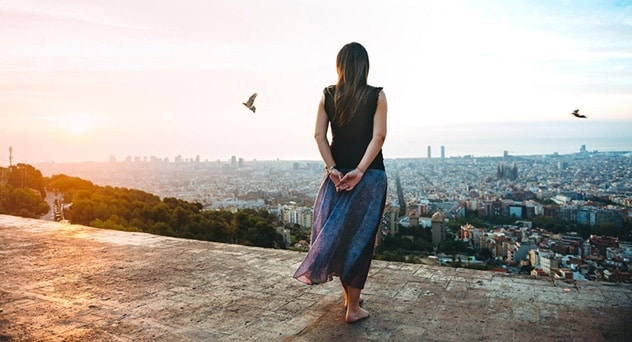
A visit to a Mayo Clinic travel medicine clinic before you depart on an international trip can help ensure a safer, smoother experience.
If you're planning a trip overseas, make one of your first stops a consultation with specialists in the travel medicine clinics at Mayo's campuses in Arizona, Florida and Minnesota. Availability of services may vary among locations. Please confirm when you request an appointment.
You meet with a travel medicine specialist who is knowledgeable about current health risks worldwide and who will promote safe and healthy travels by offering counseling, recommendations, vaccinations, prescriptions and, if needed, a referral to another expert for complex medical conditions.
Virtual visits
You might be eligible for virtual pretravel consultations. If you're interested in this option, talk with the patient appointment specialist when you contact us to schedule an appointment.
COVID-19 and international travel
International travel has become more complex due to the COVID-19 pandemic, and some countries have exit and entry requirements. Your travel medicine specialist will be able to help you prepare for these requirements so that you have a smoother travel experience.
Before your trip
Schedule an appointment for a pretravel consultation with a Mayo Clinic travel medicine clinic well before you depart so the travel medicine specialist can help you prepare. Ideally, this appointment would occur as soon as travel plans are established and at least two weeks — and preferably 4-8 weeks — before departure. When requesting an appointment for pretravel consultation, be prepared to inform the patient appointment specialist of the following:
- All countries being visited
- Dates and duration of travel
- Any unusual circumstances
At or preferably before the appointment, you will want to provide copies of all available immunization records (including the International Certificate of Vaccination, commonly referred to as the yellow card). Doing so will expedite your clinic visit and may decrease the number of vaccines you are advised to receive.
Your in-depth pre-travel consultation may include:
- A country-by-country assessment of all health risks specific for your travel itinerary, such as exotic infectious agents, altitude sickness and heat exhaustion
- A review of your medical and immunization history profile with advice for health promotion and illness prevention
- Advice for the high-risk traveler
- Immunization recommendations, counseling and administration of vaccines to prevent illnesses
- Vector precautions counseling
- Malaria prevention counseling, with prescriptions if needed
- Traveler's diarrhea counseling for prevention and self-treatment, with antibiotic prescription if needed
- Identification of health resources in the countries you'll be visiting
- Counseling on travel-related risks such as altitude sickness, with preventive prescriptions if needed
- An opportunity to ask questions about the unique health and safety concerns for your travel itinerary
You will leave your travel medicine clinic appointment with much helpful and up-to-date information.
After your trip
- Depending on where you're going and for how long, the travel clinic may recommend a routine follow-up evaluation after your return.
- If you return sick, the travel clinic staff members are Mayo Clinic infectious diseases experts who provide comprehensive post-travel consultations for evaluation and treatment of travel-related illness, including parasitic and other diseases common to tropical regions but uncommon in the United States.
- Mayo Clinic Travel Medicine Clinic
- 5881 E. Mayo Blvd. Phoenix, AZ 85054
- Phone: 480-342-0115
- 4500 San Pablo Road Jacksonville, FL 32224
- Phone: 904-953-0774
- Mayo Clinic Travel and Geographic Medicine Clinic
- 200 First St. SW East 6A, Mayo Building Rochester, MN 55905
- Phone: 507-255-7763 (toll-fee)
- Tests & procedures
- Conditions treated
- Specialty groups
- Expertise & rankings
- Clinical trials
- Patient stories
- Costs & insurance
- News from Mayo Clinic
Travel Medicine Clinics
- Request an Appointment
Make twice the impact
Your gift can go twice as far to advance cancer research and care!
Last updated on April 4th, 2024 at 07:45 pm
Medical Care In Belize

Belize has a relatively well established medical care delivery system both at the private and public sector level. Government operates hospitals or polyclinics in every major city and town and in other major population centers and villages.
But no matter what you may have heard before from sources touting the good life in Belize, be aware that medical care in Belize does not meet the same standards as medical care in North America or the European Union. With a population of of a little over 400,000 , with more than half living in poverty, the economics are simply not there for the level of medical care you may be accustomed to in your home country. There is no level one trauma center in the country. The U.S. embassy and other foreign missions recommend that foreign nationals verify their medical coverage, especially catastrophic medical coverage including the cost of medical evacuation, before visiting or taking up residence in Belize.
Health And Hygiene In Belize
Standards of health and hygiene are medium similar to that of other countries in the Caribbean. While malaria, dengue fever and other tropical diseases are present in Belize, they are rare, and as a practical matter most visitors don’t get any special shots or take other precautions before they come. No shots are required for entry into Belize, except for yellow fever if you are coming from an infected area, such as parts of Africa or South America. However, it’s always a good idea to keep tetanus-diphtheria, Hep A and B and other vaccinations up to date. Malaria prophylaxsis may be advised for extensive mainland travel; it is highly advised if you are going to remote mainland areas in southern Belize or into Guatemala . Chloroquine, taken once a week, starting two weeks before arrival, is usually all you need in most of the region. Better be safe than sorry. Check with the U.S. Centers for Disease Control, tel. 404-332-4559 or visit the CDC website , for the latest information. The biggest vacation-spoiler in Belize is probably sunburn. You’re only 18 degrees of latitude north of the Equator, and the sub-tropical sun is much stronger than back home. The leading causes of death in Belize are attributed to cardiovascular disease followed by diabetes.
Contaminated water is a major cause of illness amongst travellers in Central America, due to the presence of pathogenic organisms: bacteria, viruses and cysts. In Belize water in most hotels and resorts is filtered but this is not enough. Medical doctors here do not recommend drinking “pipe water” which is the potable that comes out of the pipe as supplied by the monopoly water company Belize Water Services Ltd.
Bottled water is available everywhere; you will only need to consider treating water if you travel to remote areas. Thanks to constant marketing by the local water companies Belizeans mostly drink bottled water This is sold in 5 gallon and 1 gallon containers useful for the home or to take on picnics or camping. The more portable sizes are 1.75, 1 and 1/2 litre.
Private Hospitals In Belize
The majority of the country’s continuous care hospitals, including the Karl Heusner public hospital, are situated in Belize City. In this town, you can find two good private hospitals: Belize Medical Associates (Tel: 223-0302) and Belize Healthcare Partners (Tel: 280-5000). Most expatriates tend to favor these private hospitals for their superior and more comprehensive medical care. Both these facilities are full service private hospitals and well staffed and equipped with medical imaging, operating theatres and laboratory services to handle emergency and trauma cases.
Belmopan which is located inland well protected from hurricanes and tropical storms has three private hospitals: St. Luke Hospital (Tel: 822-2379) , Garden City Medical Centre (Tel: 822-3023), and the Belmopan Medical Centre (Tel: 822-3179. While well staffed and equipped, these are small hospitals.
Further west, the Cayo District has the La Loma Luz private hospital at Santa Elena Town (Tel: 824-2087). This hospital offers urgent care, hospitalizations, outpatient care and has it own hemodialysis center affiliated with the National Dialysis Program.
In Northern Belize about the best private medical care is Northern Medical Plaza, a multi specialist clinic and hospital with two surgical theatres. Northern Medical Plaza Tels. 302-3708, 6310100. Many locals and expats tend to go across the border into Chetumal City for a wider range of medical services and combine medical care with shopping and entertainment. Two medical centres popular with Belizeans in Chetumal are Clinica Carranza Tel: +52983-835-1440.
Ambergris Caye has a new 45 bed public hospital donated by Taiwan under construction in 2024.
Public Hospitals In Belize
Belize City offers the highest level of medical care due to concentrated population and client base. Several dental and private medical, lab and diagnostic facilities are available in this urban center. Most any serious medical problems can be treated at Belize’s main referral hospital, the Karl Heusner Memorial Hospital (Princess Margaret Drive, Tel. 501-223-1548).
This is a modern public hospital with the usual third-world challenges. But it is is hard to beat the rates, under US$250. per day for a private hospital room compared to U.S. $500. a day at a local private hospital. Both the public and private hospitals, dentists and optometrists accept health insurance plans; just ask before engaging services.
There are seven other public hospitals, including three regional hospitals – the Southern Regional Hospital in Dangriga, the Northern Regional Hospital in Orange Walk Town, and the Western Regional Hospital in the nation’s capital The City Of Belmopan . On 28 April 2023 the Belize Cabinet gave its approval for a $90 million loan through the Saudi Fund for Development on highly concessionary terms for the construction of a 150-bedroom tertiary care/university hospital in Belmopan. Altogether, there are about 700 public hospital beds in the country’s hospitals.
The public hospitals provide basic medical specialties: internal medicine, surgery, pediatrics and OB-GYN. Karl Heusner Memorial also provides neurology, ENT, physiotherapy, orthopedic surgery and several other services. The quality of these hospitals varies considerably. Karl Heusner Memorial named after a Belize City German physician in colonial era Belize opened in 1997.
The Western Regional Hospital in The City Of Belmopan is about the next best in Belize after the KHMH. It opened almost 30 years ago but has gone through several renovations and additions. In 2013 it expanded to four operating theaters, added a dental clinic, and computerized its health records system. This alone adds a lot of efficiency as returning patients can be more easily diagnosed by retrieving their health profile and prescription information 24/7. The hospital is well staffed by Belizean, and volunteer health care professionals from Cuba and the U.S.
The Southern Regional Hospital in Dangriga, which opened in 2000, is another modern facility, with much of the same medical technologies and equipment as you’d find in a community hospital in a North American town. Other hospitals leave a lot to be desired.
Several small medical clinics, one essentially a small hospital, operate on Ambergris Caye. Besides these hospitals, Belize has a network of around 60 public health clinics and rural health posts in many towns and villages around the country , providing primary medical and dental care.

The Cost Of Medical Care In Belize
Dentists and medical doctors make a very good living in Belize . Those who can afford it, specialize in fields such as orthodontic dentistry, gastroenterology, internal medicine or cardiology to cater to the elite. A few dentists, especially those in Belize city, shun regular dentistry for cosmetic dentistry such as braces and tooth whitening. As an example a local dentist will make $25. pulling a tooth during a 30 minute procedure. Adjusting braces will earn him / her $150. for a 20 minute procedure.
The cost of medical care in Belize is well below that of North America – roughly about half the cost. A visit to a medical practitioner for basic ailments will cost about U.S. $70. including medication such as basic antibiotics, cough or allergy medicine. Ultrasound ranges about US$75. An MRI averages US$900.
Due to the relatively high cost of specialist medical care in the country, many locals and expats travel to Chetumal (Mexico) and Melchor-Flores (Guatemala) for more affordable medical and dental care.
Local physicians and dentists are trained in the U.K., Cuba, U.S., Guatemala and Mexico.
The ADO Bus from Mexico now has daily runs between Belize, Cancun, Playa Del Carmen and Merida. The latter is referred to as the “hospital run”. Merida in the Yucatan is a tier one one medical center with several specialist hospitals catering to the medical needs of most of Central America.
Cancer Treatment In Belize
Cancer treatment in Belize is basic. There is no medical doctor qualified in oncology resident in Belize. There is no facility for radiation therapy. Even something as simple as a biopsy can cost thousands of dollars as the samples are sent overseas and the waiting period is at least two weeks.
A Belizean American Oncologist Dr. Ellsworth Grant operates a small cancer clinic in Dangriga as a public service for poor Belizeans, and no one is turned away. Dr. Grant travels frequently to Belize from his home base in the U.S. and chemo therapy is available at his clinic. But radiation must be done out of the country, usually Guatemala.
Article by M.A. Romero Chief Information Officer (RET) to the Government of Belize.
Why I traveled to the rainforests of Belize to learn about medicinal plants
Jan 10, 2022 • 10 min read
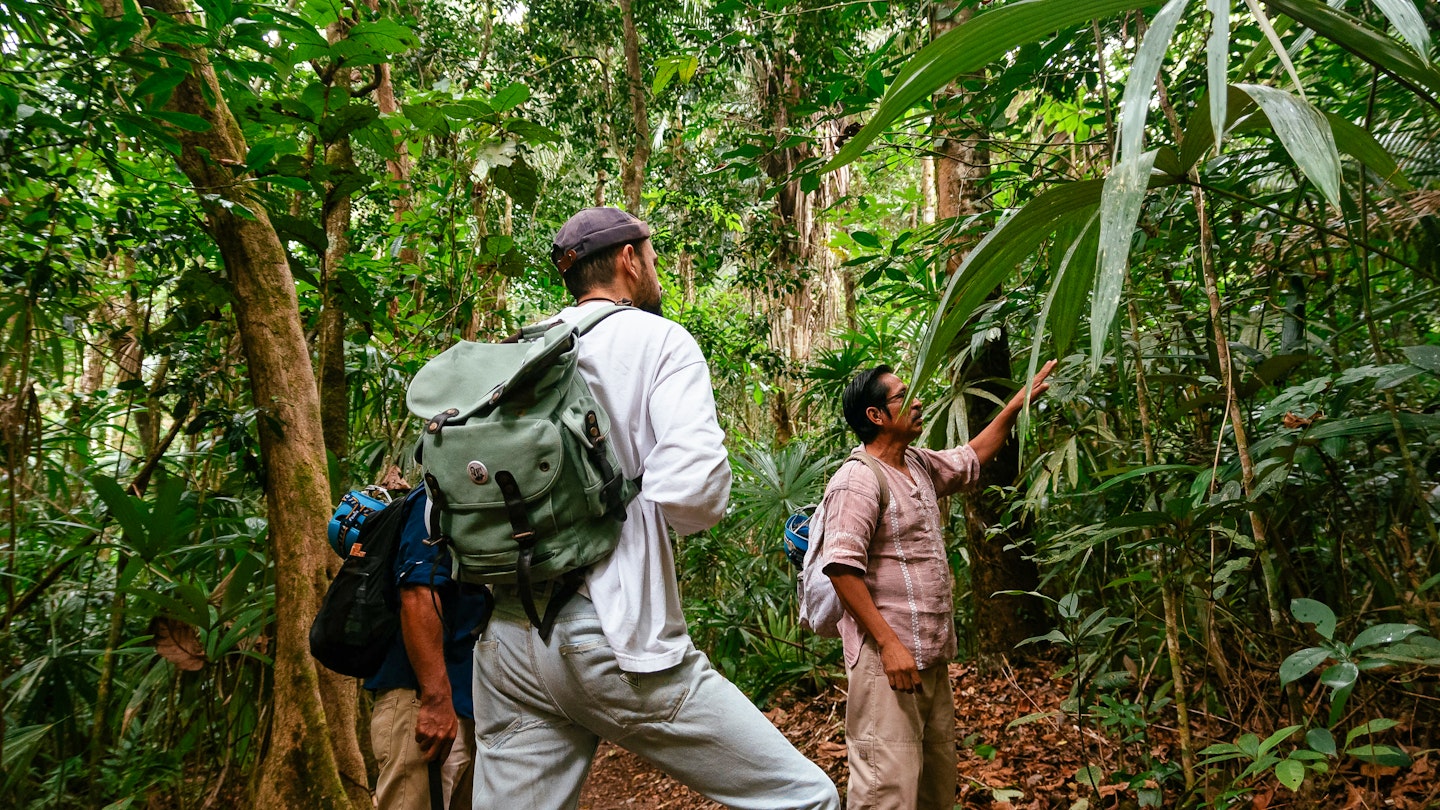
Alex Schechter is guided through Elijio Panti National Park with a practicing Mayan healer who’s well-versed in the native flora © Aquila Flores / Lonely Planet
A seldom-visited corner of Belize offers writer Alex Schechter a fresh perspective on his battle with cancer.
A month before I flew to Belize last fall, I called my oncologist. I was planning to visit a national park named after Don Elijio Panti, a famous Maya healer, where I hoped to learn about native medicinal plants. I wanted to know what my doctor, a non-Maya Belizean with a calm, jovial demeanor, thought of the “bush medicine” that remains so popular in his home country.
I began seeing Dr. Grant soon after my surgery for testicular cancer, five years ago. Despite the sobering nature of my visits, our conversations were always enjoyable. He knows I’m a travel writer, and he often hinted (not too subtly) that I should write about Belize. When I called and explained the specific subject of my search, he recalled how his grandmother would cure toothaches and upset tummies using roots and leaves from her backyard. He admitted that “sometimes, some of those things worked pretty well.” But the oncologist in him was more skeptical.
“People begin making broader claims,” he explained over the phone. “They say, ‘This one plant cures everything from diabetes to cancer to memory loss.’ Like all things, it becomes outlandish.” I learned that Dr. Grant had been treating cancer patients in Belize since 2008 at a cancer clinic he founded (the country’s first), something that had never come up in our earlier conversations.
Away from the beach, into the rainforest
Up to now, my impressions of Belize were mostly based on photos I’d seen of tropical white sand beaches and blissed-out snorkelers. This trip, however, would involve winding jungle trails, sacred Maya caves and medicinal tree bark. I found a hotel, the Gaïa River Lodge , that bordered the edge of Elijio Panti National Park , a sprawling wilderness in the west Belize district known as Cayo . The hotel offered guided “shaman” tours through the forest, which felt like a good starting point to better understand the role of traditional medicine in the country.
Dr. Grant seemed pleased that I had chosen to go to Cayo, a less-traveled area of Belize. So often, he said, tourists stick to all-inclusive resorts on the cayes, or islands and avoid the mountainous region further inland. “They miss out on all that green,” he said.
The 23 best things to do in Belize: snorkeling, fishing and cave tubing
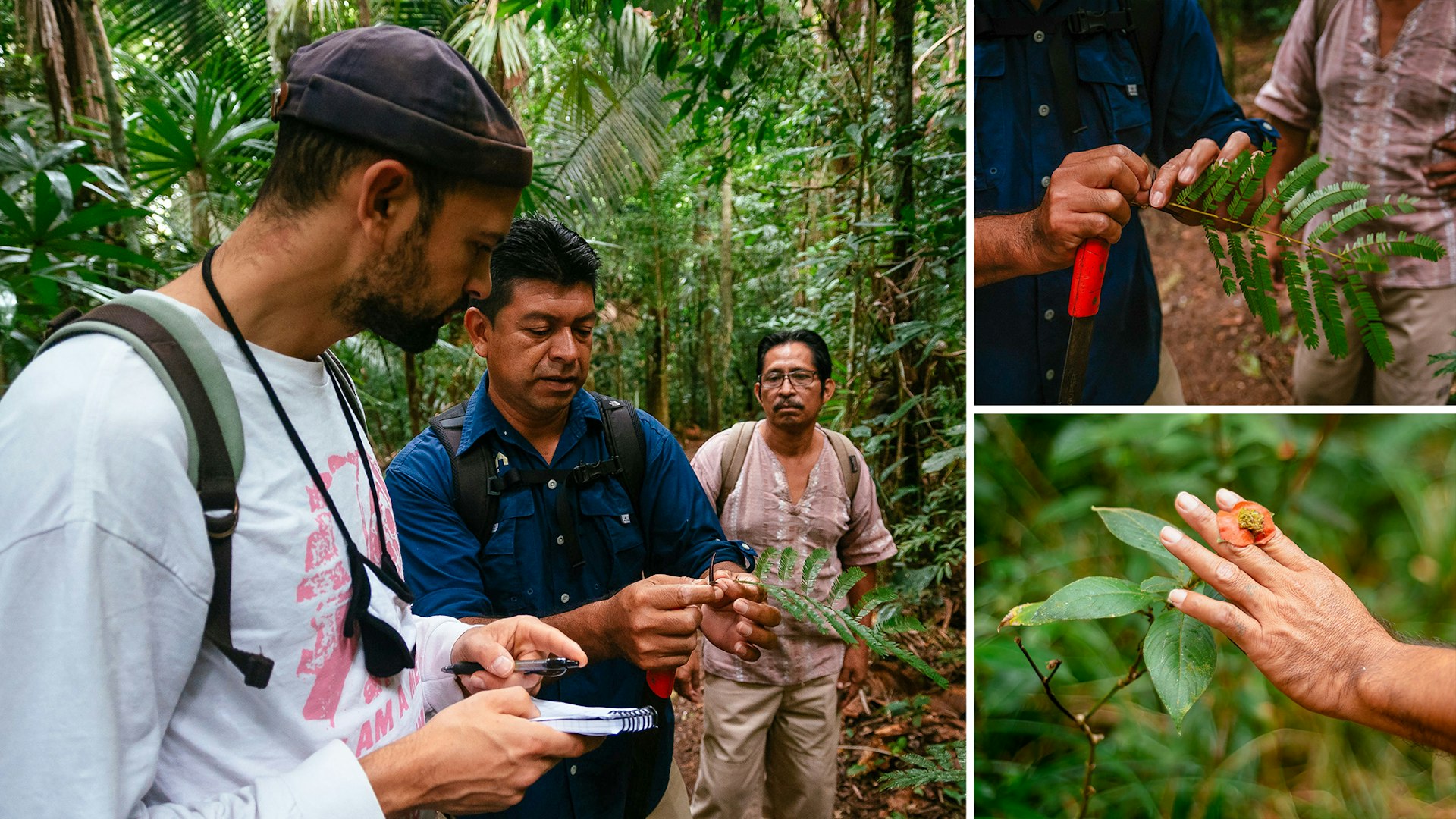
Botanical treatments with a Maya healer
On a drizzly Saturday morning, I met with Jose Magaña, a practicing Maya healer who’s well-versed in the native flora of Elijio Panti National Park. He greeted me in the lobby of Gaïa River Lodge wearing baggy cargo pants and a woven linen shirt. Soon, we were traipsing through the rainforest, crushing allspice leaves in our hands and slicing slivers of Billy Webb bark to use as a mosquito repellant.
I learned that Magaña’s grandfather was a nephew of Elijio Panti, the park’s namesake. Like his famous relative, Magaña takes his role as a healer very seriously. His patients come from all over the Cayo district, seeking treatment for diabetes, migraines, asthma and a host of other afflictions. But as he explained, the business of curing them involves more than just picking the right leaf: “What’s missing are the prayers,” he said, snapping off a purplish stem of bullhorn acacia. “You cannot harvest the herbs just because you want to. You have to talk to the plants.”
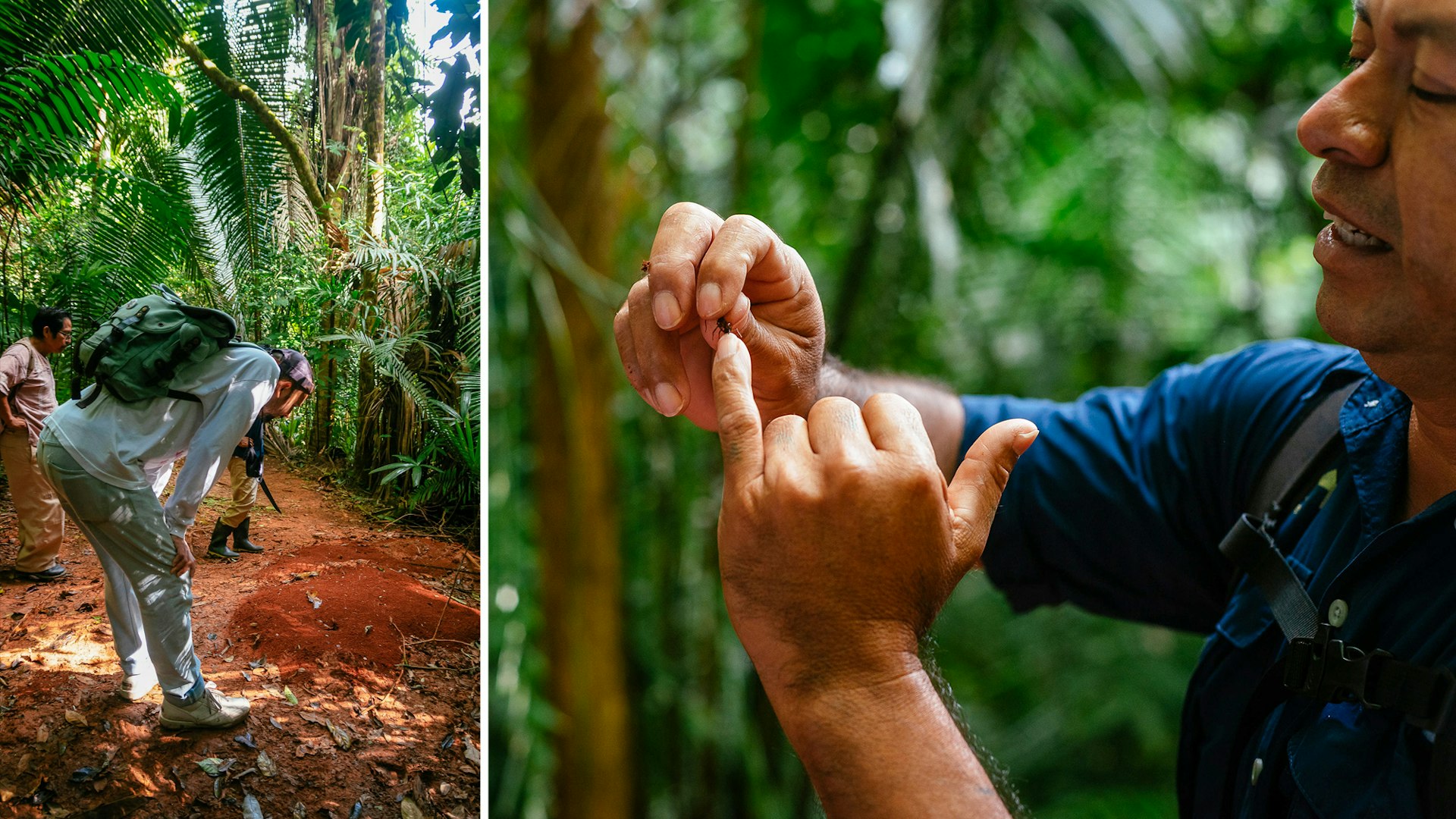
Soon, Magaña began hopping up and down on a red dirt mound, causing a small army of leafcutter ants to emerge from tiny holes near the top. Magaña seized one and allowed its mighty jaws to clamp down on his pinky nail. When he pulled, the ant did not let go. This, he explained, was the Maya precursor to surgical stitches: instead of thread, a series of leafcutter ants would attach directly to the torn skin, and their powerful bites would help seal the wound. I winced at the thought of putting their scissor-shaped heads on the site of my own stitched incision, just above my pubic bone.
Into the place of fright
We crossed a shallow stream known as Vaqueros Creek, climbed up a field where thigmotropic weeds folded at my touch as if by magic, then swerved back into dense jungle. At the end of a corridor of massive, arched cohune palms, we reached the entrance to an underground cave. Magaña said this was Xibalba, a sacred Maya cave meaning “place of fright.” But scared was the last thing I felt as Magaña gently lowered himself to the ground and uttered a welcome prayer before entering. When he finished, we strapped on helmets with flashlight beams and climbed down a ladder into the murky hollow.
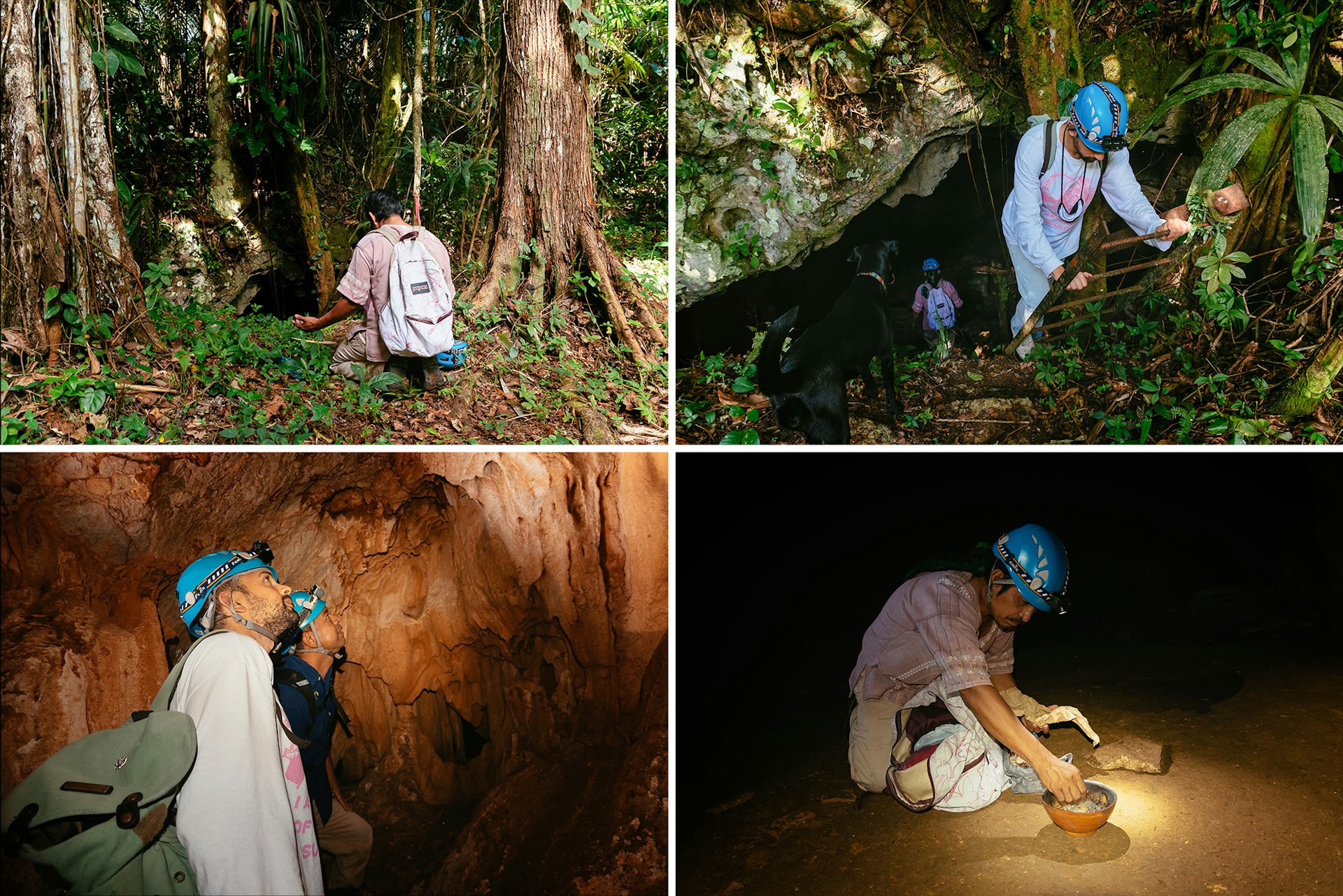
Magaña refers to himself as a h’men, Yucatec Maya for “one who knows” (he carefully avoids the word shaman, which is typically associated with sorcery and dark spirits). We ducked under jagged, pale yellow stalactites, passed through a series of labyrinthine tunnels and finally arrived at the cave’s innermost chamber, where we sat down for a traditional Maya ceremony. Magaña lit four white candles in the dirt, filled a wooden bowl with a piney resin used for incense called copal and unraveled a cloth containing several crystals and an obsidian blade.
“Some people get confused,” he said. “They see a stone and they think ‘magic.’ No! These are symbols,” he said, pointing to the items surrounding him. There were no chants or invoking of spirits. Instead, he spoke, reflecting on the importance of setting a good example for younger generations. He sprinkled a fistful of dried rosemary into the burning copal, and we sat there in silence. As the smoke swirled up towards the cratered, calcified roof, the auditorium-sized chamber took on a ghostly quality, as if the collected prayers from past generations of jungle dwellers were all humming in the air at once. It felt like the safest place I could imagine.
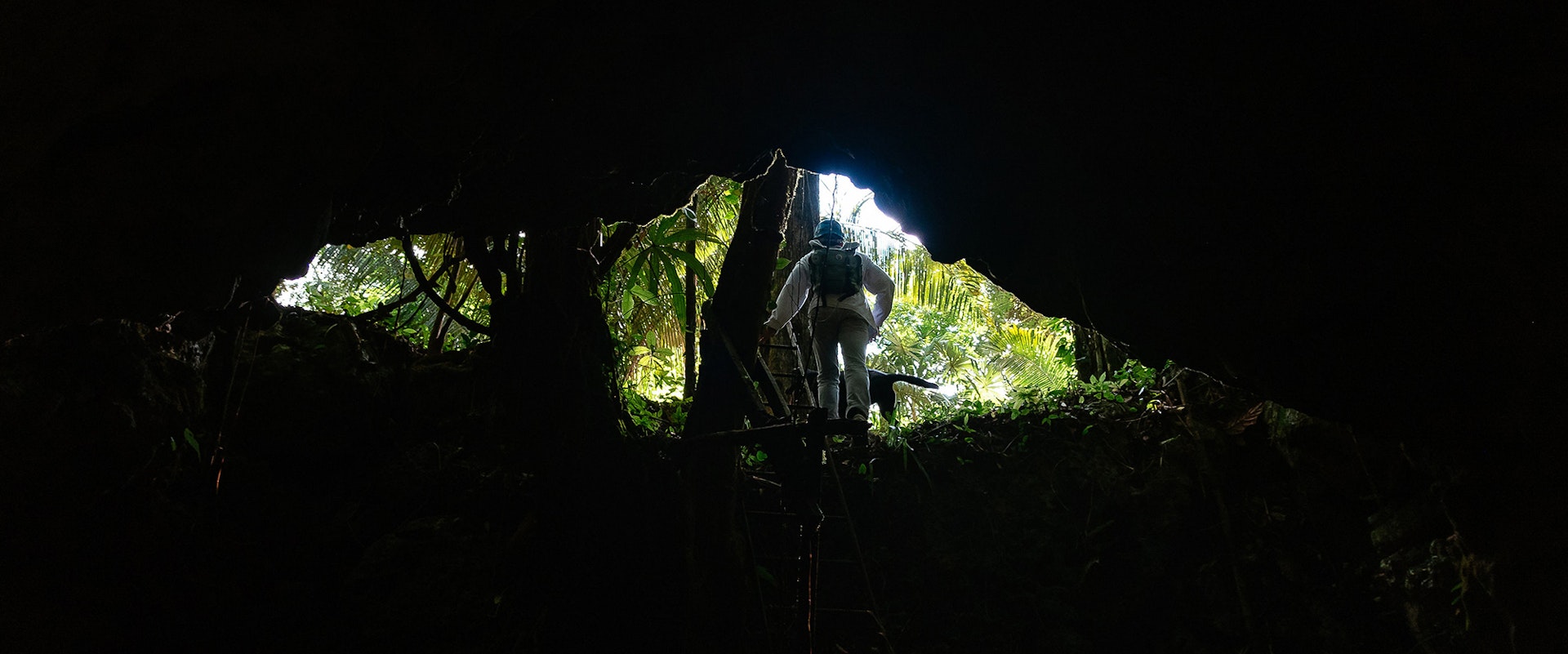
When we emerged in the daylight, the forest was serene and dappled in light. I asked Magaña why he was comfortable sharing such an intimate ritual with someone like me, a tourist. “I want to show people that we, the Maya, are still here.” He pointed at his t-shirt and backpack. “We dress in modern clothes, but that doesn’t mean we’re not Maya.”
Elijio Panti National Park recovered
Elijio Panti National Park was established in 2001, and today, it stands as a cultural symbol for the thousands of indigenous people who call this corner of Belize home. But its protected status has been shaky. In 2009, the Itzama Society, the local, all-Maya council who co-manages the park with the Belize Forest Department, lost its joint stake, and for 10 years, the 13,006-acre park languished at the hands of poachers, looters and loggers. “It was sad,” recalled Maria Garcia, the society’s chairwoman, and a niece of Don Elijio Panti. “This forest is our life. We have grown with it. It’s part of us.”
The Itzama Society regained co-management of the park in 2019 after a two-year negotiation with the government, and Garcia set her focus on community outreach. She began inviting Maya students as young as 13 to come for weekend workshops led by Maya elders. “The young people are hungry for it,” Garcia told me. “For some, it was their first time being in a Maya ceremony.”
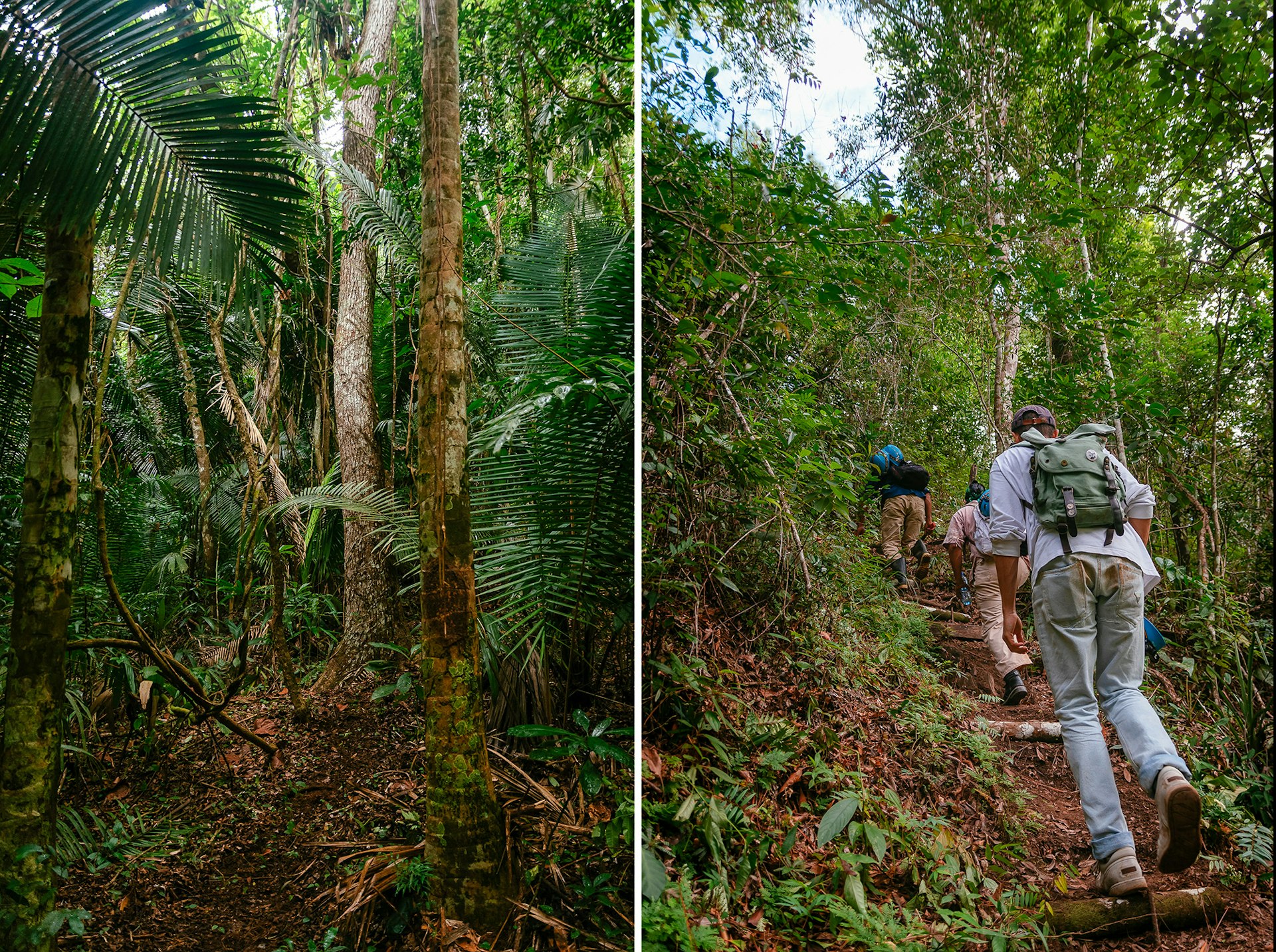
Seeing the park through a ranger's eyes
Two days after my hike with Jose Magaña, I traveled to the park’s remote interior and received a private tour from Abdon Tzib, who grew up in neighboring San Antonio. Tzib is one of four rangers who work on a volunteer basis, clearing trails and patrolling an area the size of Manhattan. Walking under a pristine canopy of sapodilla trees, he pronounced the park’s full name – Noj Kax Meen Elijio Panti National Park – and explained that it was a reference to a Yucatec Maya term meaning “the grandmother forest of healers.”
Tzib does not consider himself a h’men, but during our walk, he pointed out the medicinal properties of fragrant lemongrass, avocado leaf, wild pineapple leaves and something called firebush, which can supposedly help with women’s menstrual cramps. “That’s a really good plant to have around,” he commented. He named so many plants, I lost count. I trailed behind as he plunged confidently into thickets of vines and leaves, zeroing in on the exact specimen he was after. His affection for the plants was obvious. At one point, he seized the spiky pods of an achiote tree and opened them to reveal crimson annatto seeds, which he smeared on the palm of my hand.
A personal approach to healing
I never mentioned my cancer to either of my botanical guides, mainly because it plays such a small role in my life today. Five years after my recovery, I am more interested in learning about other cultures’ attitudes to sickness, and the conditions that lead to it, than the particulars of my past diagnosis.
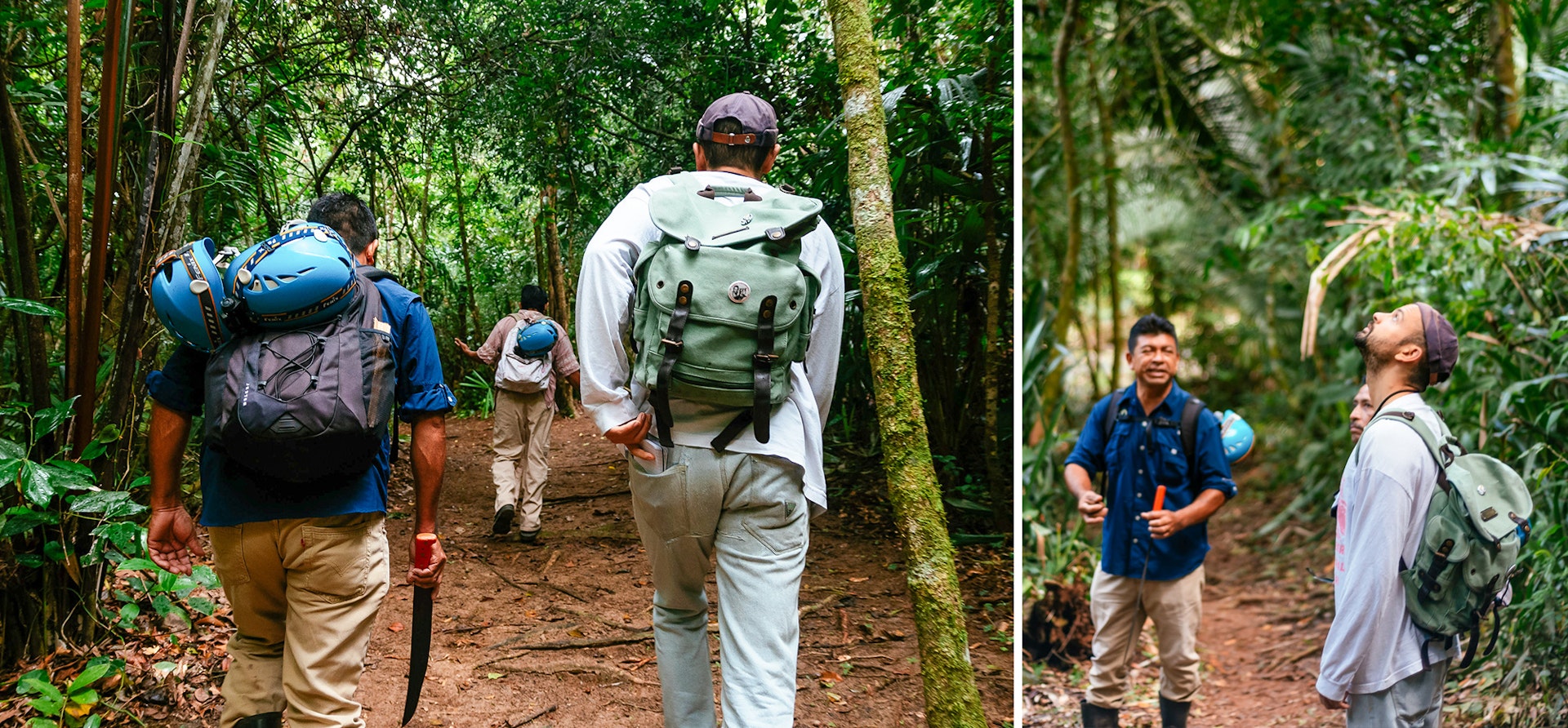
Walking with Magaña and Tzib, both of whom in their own way continue the h’men tradition that Elijio Panti popularized, I was struck by the Mayas’ personal, big-picture approach to healing. I wondered what it would be like for oncologists, as we know them in the US, to consider a patient’s underlying emotional state when prescribing treatment.
Magaña told me his patients often complained that they were victims of an enemy’s curse. He was quick to challenge such reasoning: “Not everything that happens to you is black magic,” he warned them. “Sometimes, we create our own problems. If we don’t accept that we’re suffering, how are we going to get better?”
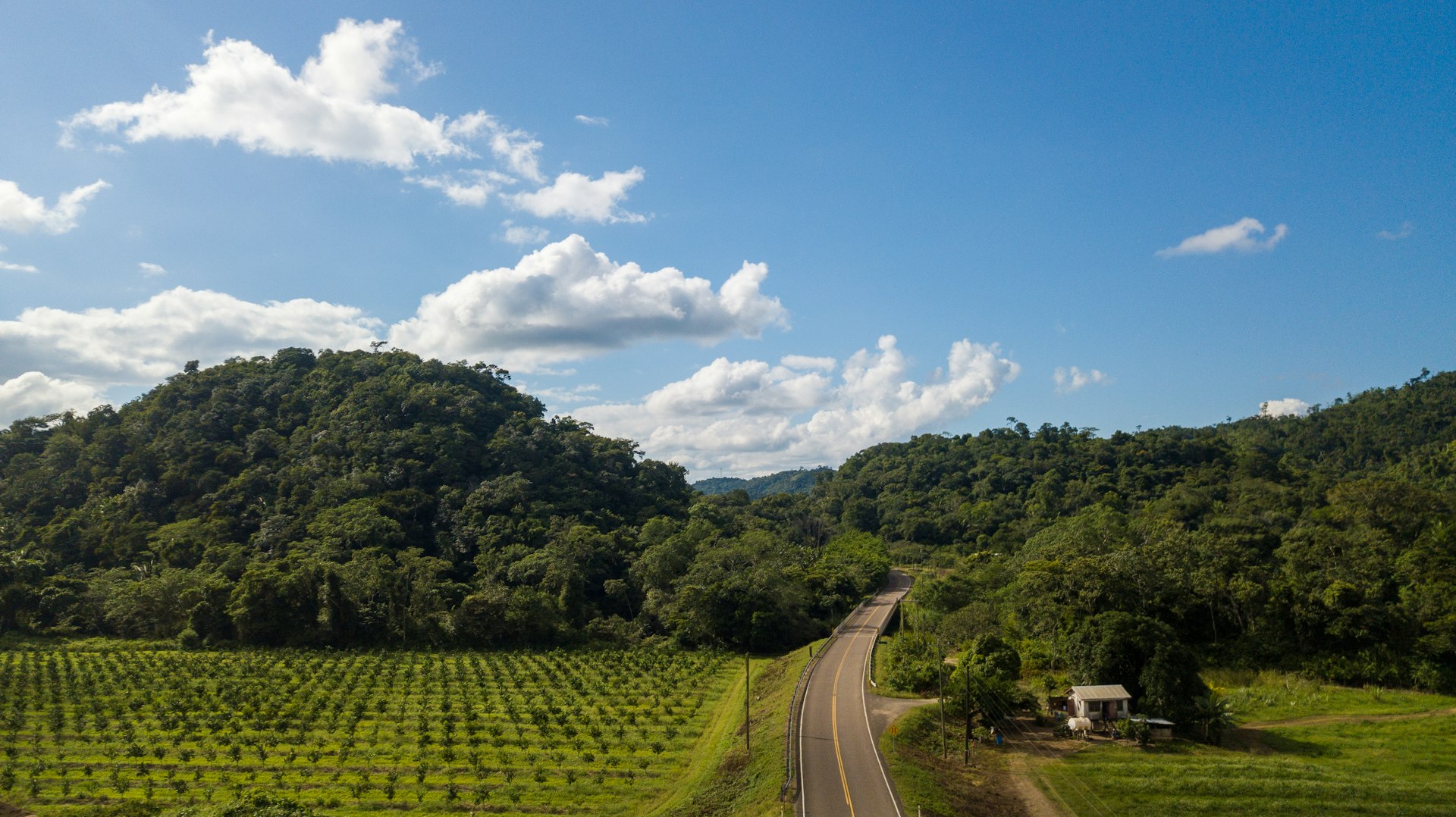
From the medicine of a jungle to a cancer clinic
On my last day in Belize, I drove three hours to the coast in Dangriga, to visit the cancer center that Dr. Grant founded. I was curious to see his other office and also to find out how my lessons in the jungle measured up against the harsh realities of more invasive treatments like chemotherapy. (Testicular cancer like mine has a 95% survival rate, and rarely requires radiation or chemotherapy.)
I rang the buzzer to a modest two-story building, which turned out to be Dr. Grant’s childhood home. A nurse led me through a small waiting room stocked with American magazines and framed pictures of tropical beach scenes. Only one patient was present: a 5-year-old boy receiving an intramuscular injection for leukemia. Behind him, his smiling father and younger brother sat quietly, the smaller boy distracted by a video game.
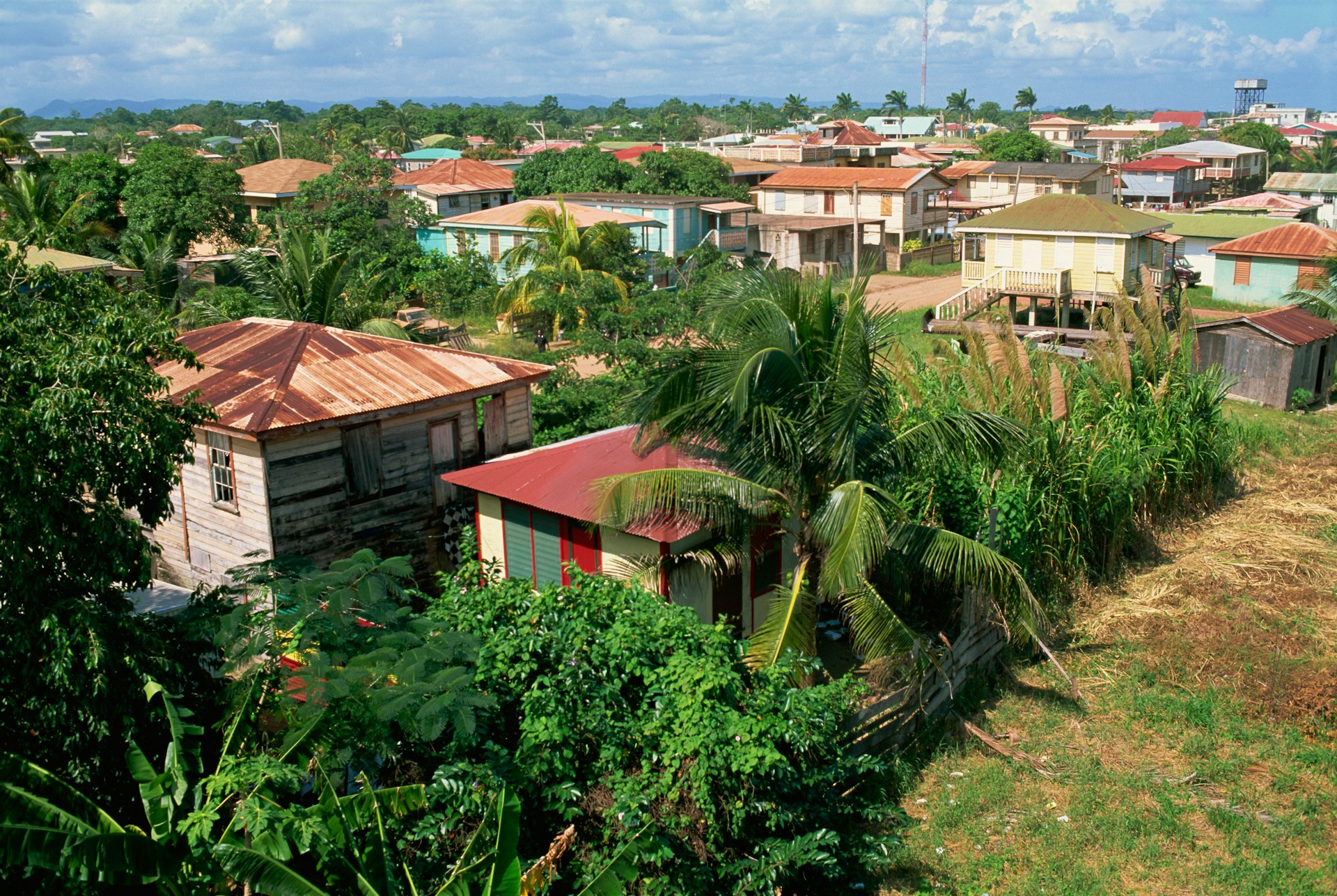
Unlike the highlands of Cayo, coastal Belize was muggy and hot. I stood sweating in the waiting room, quizzing the nurse about home remedies like noni juice and soursop tea, which many Belizeans (not just Mayas) consider to be natural antidotes to cancer. He shrugged. “If it works, it works. But with targeted therapy, we can say ‘x’ amount of chemo will have ‘x’ result. We can back that up scientifically.”
Another problem was early detection. Most patients, the nurse explained, didn’t bother coming into the clinic until they were in bad shape. And once the cancer had metastasized, it was unlikely that any form of treatment – chemical or otherwise – would be of help.
My journey with cancer
I thought back to the summer of 2016, that frightful, whirlwind week when I discovered the lump in my scrotum, scheduled an appointment with a urologist and was booked for surgery the following day. I found my cancer early before it could do any real damage. I was also lucky enough to have access to decent healthcare and a family that rallied around me.
After the surgery, I had a feeling of being reborn and a newfound respect for the subtle workings of my own body. This awareness, the desire to understand exactly what I am feeling in all moments, has stayed with me. As any healer would tell you, that is just as important as the medicine itself.
You might also like: 8 reasons Belize should be on your radar Exploring the flavors and melodies of Belize Belize: your guide to adventure activities
Belize is on our 2022 Best in Travel list. For more stories from some of the world’s most exciting destinations click here .
Safety recommendations and restrictions during a pandemic can change rapidly. Lonely Planet recommends that travelers always check with local authorities for up-to-date guidance before traveling during Covid-19 .
Explore related stories

Jan 6, 2024 • 4 min read
Tiny, tropical Belize can alternately be too hot to handle and too wet to travel. Here's when to go.
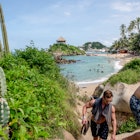
Nov 16, 2022 • 2 min read

Mar 20, 2024 • 8 min read
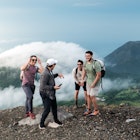
Jan 30, 2024 • 9 min read
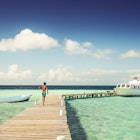
Jan 17, 2024 • 8 min read
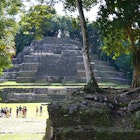
Jan 11, 2024 • 4 min read
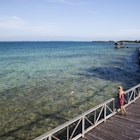
Jan 10, 2024 • 9 min read
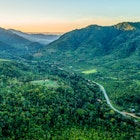
Jan 10, 2024 • 8 min read

Jan 7, 2024 • 3 min read

Jan 5, 2024 • 7 min read
You are using an outdated browser. Upgrade your browser today or install Google Chrome Frame to better experience this site.
- Section 2 - Interactions Between Travel Vaccines & Drugs
- Section 2 - Travelers’ Diarrhea
Yellow Fever Vaccine & Malaria Prevention Information, by Country
Cdc yellow book 2024.
Author(s): Mark Gershman, Rhett Stoney (Yellow Fever) Holly Biggs, Kathrine Tan (Malaria)
The following pages present country-specific information on yellow fever (YF) vaccine requirements and recommendations, and malaria transmission information and prevention recommendations. Country-specific maps are included to aid in interpreting the information. The information in this chapter was accurate at the time of publication; however, it is subject to change at any time due to changes in disease transmission or, in the case of YF, changing entry requirements for travelers. Updated information reflecting changes since publication can be found in the online version of this book and on the Centers for Disease Control and Prevention (CDC) Travelers’ Health website. Recommendations for prevention of other travel-associated illnesses can also be found on the CDC Travelers’ Health website .
Yellow Fever Vaccine
Entry requirements.
Entry requirements for proof of YF vaccination under the International Health Regulations (IHR) differ from CDC’s YF vaccination recommendations. Under the IHR, countries are permitted to establish YF vaccine entry requirements to prevent the importation and transmission of YF virus within their boundaries. Certain countries require proof of vaccination from travelers arriving from all countries ( Table 5-25 ); some countries require proof of vaccination only for travelers above a certain age coming from countries with risk for YF virus transmission. The World Health Organization (WHO) defines areas with risk for YF virus transmission as countries or areas where YF virus activity has been reported currently or in the past, and where vectors and animal reservoirs exist.
Unless issued a medical waiver by a yellow fever vaccine provider, travelers must comply with entry requirements for proof of vaccination against YF.
WHO publishes a list of YF vaccine country entry requirements and recommendations for international travelers approximately annually. But because entry requirements are subject to change at any time, health care professionals and travelers should refer to the online version of this book and the CDC Travelers’ Health website for any updates before departure.
CDC Recommendations
CDC’s YF vaccine recommendations are guidance intended to protect travelers from acquiring YF virus infections during international travel. These recommendations are based on a classification system for destination-specific risk for YF virus transmission: endemic, transitional, low potential for exposure, and no risk ( Table 2-08 ). CDC recommends YF vaccination for travel to areas classified as having endemic or transitional risk (Maps 5-10 and 5-11 ). Because of changes in YF virus circulation, however, recommendations can change; therefore, before departure, travelers and clinicians should check CDC’s destination pages for up-to-date YF vaccine information.
Duration of Protection
In 2015, the US Advisory Committee on Immunization Practices published a recommendation that 1 dose of YF vaccine provides long-lasting protection and is adequate for most travelers. The recommendation also identifies specific groups of travelers who should receive additional doses, and others for whom additional doses should be considered (see Sec. 5, Part 2, Ch. 26, Yellow Fever ). In July 2016, WHO officially amended the IHR to stipulate that a completed International Certificate of Vaccination or Prophylaxis is valid for the lifetime of the vaccinee, and YF vaccine booster doses are not necessary. Moreover, countries cannot require proof of revaccination (booster) against YF as a condition of entry, even if the traveler’s last vaccination was >10 years ago.
Ultimately, when deciding whether to vaccinate travelers, clinicians should take into account destination-specific risks for YF virus infection, and individual risk factors (e.g., age, immune status) for serious YF vaccine–associated adverse events, in the context of the entry requirements. See Sec. 5, Part 2, Ch. 26, Yellow Fever , for a full discussion of YF disease and vaccination guidance.
Table 2-08 Yellow fever (YF) vaccine recommendation categories 1
Malaria prevention.
The following recommendations to protect travelers from malaria were developed using the best available data from multiple sources. Countries are not required to submit malaria surveillance data to CDC. On an ongoing basis, CDC actively solicits data from multiple sources, including WHO (main and regional offices); national malaria control programs; international organizations; CDC overseas offices; US military; academic, research, and aid organizations; and the published scientific literature. The reliability and accuracy of those data are also assessed.
If the information is available, trends in malaria incidence and other data are considered in the context of malaria control activities within a given country or other mitigating factors (e.g., natural disasters, wars, the coronavirus disease 2019 pandemic) that can affect the ability to control malaria or accurately count and report it. Factors such as the volume of travel to that country and the number of acquired cases reported in the US surveillance system are also examined. In developing its recommendations, CDC considers areas within countries where malaria transmission occurs, substantial occurrences of antimalarial drug resistance, the proportions of species present, and the available malaria prophylaxis options.
Clinicians should use these recommendations in conjunction with an individual risk assessment and consider not only the destination but also the detailed itinerary, including specific cities, types of accommodations, season, and style of travel, as well as special health conditions (e.g., pregnancy). Several medications are available for malaria prophylaxis. When deciding which drug to use, consider the itinerary and length of trip, travelers’ previous adverse reactions to antimalarials, drug allergies, medical history, and drug costs. For a thorough discussion of malaria and guidance for prophylaxis, see Sec. 5, Part 3, Ch. 16, Malaria .
Entry requirements : None
CDC recommendations : Not recommended
- Rare transmission
- No malaria transmission in Belize City or on islands frequented by tourists (e.g., Ambergris Caye)
- P. vivax (primarily)
- None (insect bite precautions / mosquito avoidance only) 4
Other Vaccines to Consider
See Health Information for Travelers to Belize
1 Current as of November 2022. This is an update of the 2010 map created by the Informal WHO Working Group on the Geographic Risk of Yellow Fever.
2 Refers to Plasmodium falciparum malaria, unless otherwise noted.
3 Tafenoquine can cause potentially life-threatening hemolysis in people with glucose-6-phosphate-dehydrogenase (G6PD) deficiency. Rule out G6PD deficiency with a quantitative laboratory test before prescribing tafenoquine to patients.
4 Mosquito avoidance includes applying topical mosquito repellant, sleeping under an insecticide-treated mosquito net, and wearing protective clothing (e.g., long pants and socks, long-sleeve shirt). For additional details on insect bite precautions, see Sec. 4, Ch. 6, Mosquitoes, Ticks & Other Arthropods.
5 Primaquine can cause potentially life-threatening hemolysis in people with G6PD deficiency. Rule out G6PD deficiency with a quantitative laboratory test before prescribing primaquine to patients.
6 P. knowlesi is a malaria species with a simian (macaque) host. Human cases have been reported from most countries in Southwest Asia and are associated with activities in forest or forest-fringe areas. P. knowlesi has no known resistance to antimalarials.
Yellow Fever Maps
2 In 2017, the Centers for Disease Control and Prevention (CDC) expanded its YF vaccination recommendations for travelers going to Brazil because of a large YF outbreak in multiple states in that country. Please refer to the CDC Travelers’ Health website for more information and updated recommendations.
3 YF vaccination is generally not recommended for travel to areas where the potential for YF virus exposure is low. Vaccination might be considered, however, for a small subset of travelers going to these areas who are at increased risk for exposure to YF virus due to prolonged travel, heavy exposure to mosquitoes, or inability to avoid mosquito bites. Factors to consider when deciding whether to vaccinate a traveler include destination-specific and travel-associated risks for YF virus infection; individual, underlying risk factors for having a serious YF vaccine–associated adverse event; and destination entry requirements.
The following authors contributed to the previous version of this chapter: Mark D. Gershman, Emily S. Jentes, Rhett J. Stoney (Yellow Fever) Kathrine R. Tan, Paul M. Arguin (Malaria)
File Formats Help:
- Adobe PDF file
- Microsoft PowerPoint file
- Microsoft Word file
- Microsoft Excel file
- Audio/Video file
- Apple Quicktime file
- RealPlayer file
- Zip Archive file
Exit Notification / Disclaimer Policy
- The Centers for Disease Control and Prevention (CDC) cannot attest to the accuracy of a non-federal website.
- Linking to a non-federal website does not constitute an endorsement by CDC or any of its employees of the sponsors or the information and products presented on the website.
- You will be subject to the destination website's privacy policy when you follow the link.
- CDC is not responsible for Section 508 compliance (accessibility) on other federal or private website.

IMAGES
COMMENTS
Dosing info - Hep A. Hepatitis B. Recommended for unvaccinated travelers younger than 60 years old traveling to Belize. Unvaccinated travelers 60 years and older may get vaccinated before traveling to Belize. Hepatitis B - CDC Yellow Book. Dosing info - Hep B. Measles. Cases of measles are on the rise worldwide.
The Belize Travel Insurance is mandatory and will help protect travelers against incurred medical and non-medical expenses, if they test positive for COVID-19 during their stay in Belize. The Insurance Plan, available for $18.00 US, provides coverage for up to $50,000 USD in medical expenses related to treatment of COVID-19 for a period of 21 ...
Call us in Washington, D.C. at 1-888-407-4747 (toll-free in the United States and Canada) or 1-202-501-4444 (from all other countries) from 8:00 a.m. to 8:00 p.m., Eastern Standard Time, Monday through Friday (except U.S. federal holidays). See the State Department's travel website for the Worldwide Caution and Travel Advisories.
Specific. Advice. Travellers'. Diarrhea Kits. Available. Belize is bursting with culture and tropical fun for all types of travellers. Whether exploring archaeological sites, studying culture or venturing in the wild, Belize has a bit of everything. The district of Cayo is the perfect destination for history fans, archeologists at heart and ...
Travel medical insurance can pay up to the policy limits for hospital and doctor bills, lab work and medicine. The most generous travel plans provide $500,000 per person for medical expenses, but ...
Published on March 11, 2021. Belize has become the first country in the Caribbean to allow vaccinated travelers to visit without a COVID-19 test. Vaccinated travelers now need only to present a ...
As of Feb. 15, 2022, all visitors are required to apply for Belize Travel Health Insurance, which costs US$18 and provides coverage for up to US$50,000 in medical expenses related to treatment of ...
Medical facilities in Belize are limited and availability of prescription medicine is unreliable. Serious medical cases are normally evacuated to the US, at the patient's expense. Travel and ...
All U.S. citizens must have a valid U.S. passport for the duration of their stay in Belize. No visas are required for citizens of the United States for tourist visits of up to 30 days, but they must have proof of their intent to depart Belize (such as onward or return air tickets) and proof of sufficient funds to maintain themselves in Belize.
When Belize Travel Insurance was required, both tourists and hotels observed that it was good to have, as this covered things other than medical care for COVID-19. The cost of the policy in Belize is still US$18. and provides coverage for up to US$50,000. in medical expenses related to treatment of COVID-19 for a period of 21 days. This ...
November 13, 2023. Belize - Level 2: Exercise Increased Caution. C. Exercise increased caution in Belize due to crime. Some areas have increased risk. Please read the entire Travel Advisory. Country Summary: Violent crime - such as sexual assault, home invasions, armed robberies, and murder - are common even during daylight hours and in ...
Yes, Belize is safe, and quite beautiful too! With soft, white-sand beaches; jewel-like turquoise and sapphire waters; and plenty of friendly people with laid-back attitudes, it's a great place for families and adults. The key to staying safe in Belize is to practice common sense and stay away from a few specific neighborhoods - a fair ...
BELIZE CITY — Effective Feb. 15, 2022, travellers heading to Belize must purchase health insurance in order to enter the country. The announcement comes from the Belize Tourism Board (BTB) as ...
Belize COVID-19 Updates. Effective July 12, 2022, the Belize Tourism Board advises that the Government of Belize has decided to remove all public health measures at the points of entry in Belize (land and sea). Tourists visiting Belize can move about freely, as of 1 March 2022. It is recommended that they stay at Gold Standard certified ...
Mayo Clinic Travel and Geographic Medicine Clinic. 200 First St. SW. East 6A, Mayo Building. Rochester, MN 55905. Phone: 507-255-7763 (toll-fee) Request an appointment. March 29, 2024.
The cost of medical care in Belize is well below that of North America - roughly about half the cost. A visit to a medical practitioner for basic ailments will cost about U.S. $70. including medication such as basic antibiotics, cough or allergy medicine. Ultrasound ranges about US$75. An MRI averages US$900.
As any healer would tell you, that is just as important as the medicine itself. You might also like: 8 reasons Belize should be on your radar Exploring the flavors and melodies of Belize Belize: your guide to adventure activities. Belize is on our 2022 Best in Travel list. For more stories from some of the world's most exciting destinations ...
CDC Yellow Book 2024. Author (s): Mark Gershman, Rhett Stoney (Yellow Fever) Holly Biggs, Kathrine Tan (Malaria) The following pages present country-specific information on yellow fever (YF) vaccine requirements and recommendations, and malaria transmission information and prevention recommendations. Country-specific maps are included to aid in ...